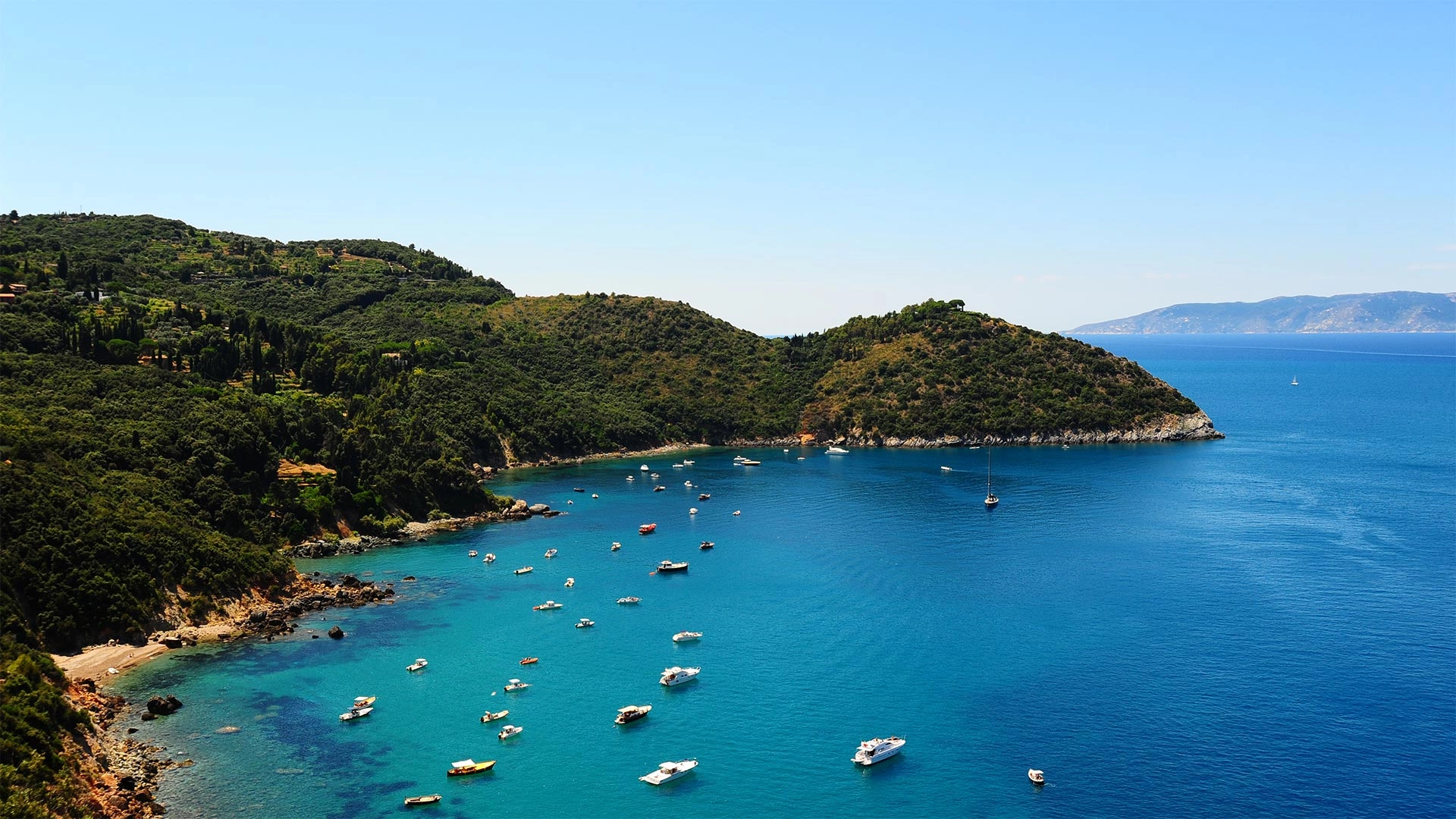

Renew Your Certificate
Recreational courses, superyacht courses, choose your location.
There is an IYT school on six continents. Begin training in the Mediterranean and finish in the Caribbean. Wherever you choose to be! IYT’s unique modular approach to yacht training has allowed the successful establishment of global partner schools offering a broad range of recreational and professional courses.
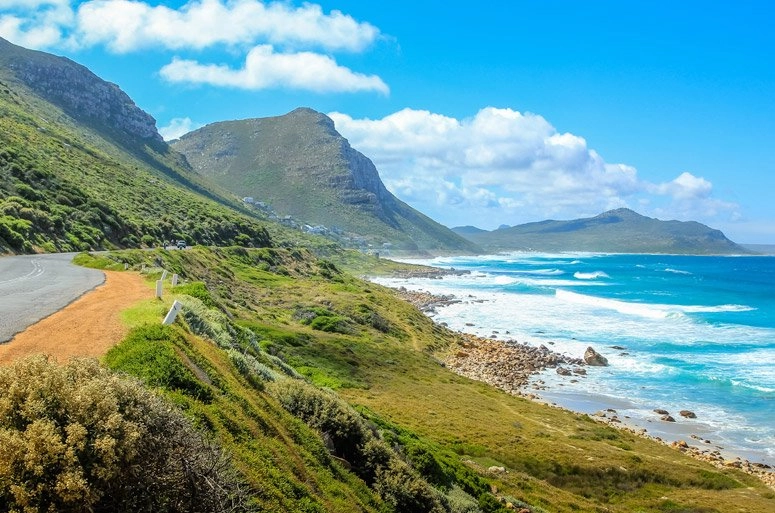
North America

South America

Learn to Sail
Become A Partner School
- Upgrade Your School
Government & Organization Approvals
- Recreational
- Privacy Policy & Terms Of Use
- Become a Partner School
- Register with IYT
- Find a School
- IYT E-Learning
- Certificate Renewal & Replacement
- Get Certified
- Recreational Training Course Progression
- IYT Passport
- Crossover Opportunities
- Course Progression
- Course Progression Interior
- Dive Boat Training
- Forms And Docs
- Instructor Training
- Personal Watercraft Operator
- Dinghy Sailing Programme
- IYT Try Sailing
- IYT Introductory Sailing Skills
- IYT Day Skipper / Crew Sail
- International Crew
- International Flotilla Skipper
- International Bareboat Skipper
- International Flotilla Skipper Sail – Catamaran
- International Bareboat Skipper Sail – Catamaran
- International Certificate of Competency (ICC Certificate)
- Powerboat Skipper
- Yachtmaster Coastal (Power or Sail)
- Yachtmaster Coastal Sail – Catamaran
- Yachtmaster Offshore (Power or Sail)
- Yachtmaster Offshore Sail – Catamaran
- Yachtmaster Ocean
- Patron de Yates (Yachtmaster Coastal Spanish edition)
- Marine Communications (VHF-SRC)
- Small Powerboat and Rib Master (MCA Recognised)
- IYT Commercial Tender License Course
- Weather Master
- Navigation Master
- Master of Yachts Coastal/Mate 200 Tons (Power or Sail)
- Master of Yachts Limited (Power or Sail)
- Master of Yachts Unlimited
- Superyacht Chef
- Superyacht Deck Crew Course
- Superyacht Hospitality Training
- Boat Engineer Course (SCV Code for Vessels Operating in the Caribbean)
- IYT-MSWI BoatMaster Course
- Become An IYT School
- Find A School
- Course Levels
- Instructor Qualifications
- Vessel Requirements
- Vessel and Facility Requirements
- Unauthorised Schools and Other Entities
- Shipping & Delivery
- Government Approvals
Language selection
Wxt language switcher.
- Français fr
Small Vessel Operator Proficiency Training Course - TP 14692 E
From: Transport Canada
Small Vessel Operator Proficiency Training Course (PDF, 327 KB)
Table of Contents
Recognized institution, course outline.
- Legal aspects and requirements of non-pleasure small vessel operations
- Basic construction terminology
- Vessel hull types and configurations
- Propulsion systems
- Mooring of a vessel and related seamanship work
- Manoeuvring a vessel
- Safe navigation and collision prevention
- Maintaining a vessel's stability
- Safe working practices and safety culture
- Marine weather and marine forecasts
- Use of radar for navigation safety
- Determination of a vessel's position using electronic navigation aids
- Use of marine charts and nautical publication to plan and execute a voyage
- Use of a magnetic compass for taking bearings and for steering
- The Canadian buoyage system
- Dealing with emergency situations
- The Search and Rescue resources
- Pollution prevention
- The Canada Shipping Act, 2001 and the Canadian regulations
- Departure preparation
- Quick reference checklists
1. Background
The subject matter contained herein meets the requirements of a stand-alone course that addresses the particular need for minimum training of operators of commercial vessels, other than tugs and fishing vessels, up to 5 gross tonnage engaged on a near coastal, class 2 or a sheltered waters voyage, and for fishing vessels up to 15 gross tonnage or 12 meters overall length engaged on a near coastal, class 2 (including an inland voyage on Lake Superior or Lake Huron) or a sheltered waters voyage.
To provide course participants with:
- a basic understanding of the hazards associated with the marine environment and their own vessel and the prevention of shipboard incidents;
- the knowledge and skills necessary to safely operate a small non-pleasure vessel in near coastal and sheltered waters under normal operating conditions, including darkness and restricted visibility;
- additional knowledge on aids to navigation and seamanship to supplement individual experience.
3. Practical aspects of delivery
- Marine Safety’s involvement will be limited to course accreditation and quality assurance.
- Course providers will issue the training certificate in the form specified by Marine Safety.
- Successful completion of the approved training course is mandatory – i.e. there will be no option of a challenge exam.
- No requirement for a proof of continued proficiency is contemplated at this time.
- Course will be made available to candidates as near as possible to their community.
- A person must be at least 18 years of age before using this certificate to carry out the duties of an operator of a commercial vessel.
4. Number of participants
The number of participants in a class should not exceed 12 per instructor for any practical demonstrations and must not exceed 24 per instructor for lectures and audio-visual presentations.
5. Duration
Minimum 26 hours including 2 hours for evaluation.
6. Evaluation
- The written examination approved by Marine Safety contains 50 multiple–choice questions and the pass mark is 70%.
- Administering the examination orally may be considered on a case-by-case basis.
7. Specific instructor qualifications
The main course instructor must hold a master certificate not lower than a Fishing Master, Fourth Class certificate or a Master 150 gross tonnage, Domestic certificate. The Master Limited certificate or other instructor qualifications will be considered on a case-by-case basis. If the course is under the supervision of more than one instructor, the assistant instructors must hold qualifications related to the marine industry or have related skills and be approved in accordance with the Quality Management Manual – Marine Personnel Standards and Pilotag e.
Courses are to be provided by a “recognized institution” as defined in the Marine Personnel Regulations . Approval procedures are provided in the chapter entitled Approval of Marine Training Courses and Programs of the Quality Management Manual – Marine Personnel Standards and Pilotage , published by the Department of Transport, Marine Personnel Standards and Pilotage Directorate.
Institutions must submit for approval their course syllabus, training manual, instructor qualifications and any other information required by the above-mentioned document, to the following address:
Marine Personnel Standards & Pilotage Transport Canada, Marine Safety 112, Kent Street, Tower B, 4 th Floor Ottawa, Ontario K1A 0N5
1. Legal aspects and requirements of non-pleasure small vessel operations 1 hour
2. Basic construction terminology 0.5 hours
3. Vessel hull types and configurations 0.5 hours
4. Propulsion systems 1 hour
5. Mooring of a vessel and related seamanship work 0.5 hours
6. Manoeuvring a vessel 1 hour
7. Safe navigation and collision prevention 3 hours
8. Maintaining a vessel’s stability 1 hour
9. Safe working practices and safety culture 1 hour
10. Marine weather and marine forecasts 2.5 hours
11. Use of radar for navigation safety 2 hours
12. Determination of a vessel’s position using electronic navigation aids 1 hour
13. Use of marine charts and nautical publications to plan and execute a voyage 2 hours
14. Use of a magnetic compass for taking bearings and for steering 1 hour
15. The Canadian buoyage system 1 hour
16. Dealing with emergency situations 1.5 hours
17. The Search and Rescue resources 1 hour
18. Pollution prevention 0.5 hours
19. The Canada Shipping Act, 2001 and the Canadian regulations 1 hour
20. Departure preparation 0.5 hours
21. Quick reference checklists 0.5 hours
Examination: 2 hours
Total: 26 hours
Course Syllabus
1. legal aspects and requirements of non-pleasure small vessel operations.
- Understand the scope, purpose and limitations of the Small Vessel Operator Proficiency certificate
- Define vessel, passenger and pleasure craft and understand applicable requirements when a vessel in not considered a pleasure craft
- Know who requires a Small Vessel Operator’s Proficiency certificate
- Know Transport Canada’s Small Vessel Inspections and Monitoring Program
- Master’s responsibility - safety (life, environment and property) and commercial aspects
2. Basic construction terminology
- Definitions used to describe direction, locations and structural components of a small vessel
- Know the basic terminology used in small vessel construction
3. Vessel hull types and configurations
- Knowledge of the nature of displacement and planing hulls
- an open vessel
- an enclosed hull vessel
- an inflatable rescue craft
- a catamaran
- other hull types
4. Propulsion systems
- outboard motors
- stern drives
- inboard engines
- Explain basic engine starting and shut down procedures
- Describe engine and propulsion systems surveillance and monitoring required and actions to be taken in case of emergency, fault or alarm
5. Mooring of a vessel and related seamanship work
- Understand the role of ropes, lines, knots and splices in the marine industry
- Explain the different construction methods and properties and limitations of synthetic and natural ropes
- List the names of the common mooring lines and how to properly secure a vessel to a dock (floating and non-floating wharves)
- Understand the role and when to use fenders
- Demonstrate basic knots, bends and hitches
6. Manoeuvring a vessel
- Capacity to manoeuvre the vessel for berthing, departure from the dock, navigation and anchoring
- Knowledge of the vessel’s turning circle and manoeuvring characteristics
- As applicable, the effect of propellers, rudders, jets and outboard engines when moving ahead and astern and when manoeuvring
- Effect of winds and currents when manoeuvring
- Understand what constitutes a good anchorage
- Know how to properly lower and set an anchor
- Know the procedures for riding at anchor
- Know how to properly weigh and stow the anchor
- Explain the different variations of small vessel anchors
7. Safe navigation and collision prevention
A basic understanding of the Collision Regulations and Canadian modifications with particular reference to:
- The terms “making way”, “underway”, “risk of collision”, “stand on vessel”, “give way vessel” and “safe speed”
- Responsibilities for collision avoidance
- The need to keep a proper lookout
- Recognition of the signs, lights and shapes carried by vessels encountered in the area of operation
- International and Canadian distress signals
- The benefit and requirement to use a radar reflector
- Actions to be taken in sight or out of sight of other vessels in good visibility and in reduced visibility
- Describe navigation lights for small vessels including masthead light, sidelights and the stern light
- Understand the role and use of all-round navigation lights
- Understand the role and use of anchor lights
- Sound signals
- The role and use of shapes on own vessel and observed
8. Maintaining a vessel’s stability
- Understand the hazards of Free Surface Effect
- Understand the hazards of loose water (or fish) on deck
- Understand the principles of vessel stability and precautions when loading and unloading weights (passengers, equipment, fish or cargo)
- Know the effects associated with vessel load distribution and trim
- Know the hazards associated during icing conditions
- Understand the principles of freeboard and effects of fresh and salt water including Fresh Water Allowance
- Know the importance of maintaining watertight integrity
- Understand the requirement for proper stowage of equipment and cargo
- Understand the concept and the importance of reserve buoyancy
9. Safe working practices and safety culture
- Understand the necessity for keeping the vessel shipshape
- Know the hazards within the marine workplace
- Precautions necessary when working aloft
- Precautions to be taken when entering confined spaces
- Demonstrate the signals for directing winch or crane operations
- Know the standard industry procedures for safe refuelling operations
- Care of life jackets, PFD ’s anti-exposure suits and other lifesaving equipments
- Care of fire detection and extinguishing equipment
- Flares: types, safe use, storage and disposal
- Safety in towing (distress assistance)
10. Marine weather and marine forecasts
- Understand the origin and reliability of a marine forecast and where one can be obtained
- State the marine wind speed categories
- Understand the significance and difference of the marine weather warnings, small craft warnings, gale, and storm warnings
- Association between wind shift and the movement of a barometer
- Know small vessel operating procedures in bad weather
- Understand the significance of the various sea states and how they affect small vessel operation including land effects and deflection
- Understand the danger associated with thunderstorms, squall line recognition
- Understand the conditions that lead to Icing
- Associate the forecasted weather effect with loading a small vessel
11. Use of radar for navigation safety
- Start-up procedure
- Function and effect of main commands
- Interpretation of the radar image
- Identification of radar marks useful for navigation
- Bearing-taking and distance measurement by radar
- Understanding the use of radar for collision avoidance
12. Determination of a vessel’s position using electronic navigation aids
Ability to correctly use the GPS :
- Starting procedure and functioning of the device
- Correct use of data supplied by the instrument
- Recognizing possible errors, lack of reliability and the need to double check
13. Use of marine charts and nautical publications to plan and execute a voyage
- Demonstrate ability to plot a position on the nautical chart
- Understand the requirement to carry nautical charts on board
- Demonstrate basic nautical chart reading, course and position plotting
- Demonstrate the use of nautical publications (List of Lights, Canadian Tide and Current Tables, Notices to Mariners)
14. Use of a magnetic compass for taking bearings and for steering
- Know how to use a magnetic compass and its application to the nautical chart of the operational area
- Compass deviation on small vessels and how to check the compass and make a simple deviation card
15. The Canadian buoyage system
- Understand the Canadian buoy system
- Demonstrate using vessel models (or equivalent) how to navigate a channel marked by lateral buoys
- Demonstrate using vessel models (or equivalent) how to navigate a waterway marked by day beacons
- Explain fairway, bifurcation, cautionary, isolated and special purpose buoys
- Explain how cardinal buoys indicate the preferred passage
- Understand the significance of Scuba diving buoys and the “diver’s flag”
16. Dealing with emergency situations
- Man overboard
- Release of a polluting substance or liquid
- Measures to be taken to ensure protection and safety of crew members and passengers in emergency situations
- The master’s obligation with regard to initial and subsequent reports to be made in case of a marine occurrence
17. The Search and Rescue resources
- Know the Search and Rescue resources available in area of operation
- Know the Marine SAR coordination system in the operational area
- Understand what happens after an “operator” initiates a distress call
- Know the spoken Distress, Urgency and Routine prefixes on VHF radio
- Understand the responsibilities when hearing or responding to a distress call
18. Pollution prevention
- Knowledge of the precautions to be taken during fuelling
- Knowledge of the statutory requirements to report pollution incidents
- Knowledge of Division 4 – Sewage and Division 5 – Garbage of the Prevention of Pollution from Ships and for Dangerous Chemicals Regulations
19. The Canada Shipping Act, 2001 and the Canadian regulations
- Basic knowledge of the Canada Shipping Act, 2001
- Small vessel regulations or Fishing vessel safety regulations , as applicable
- Parks and Marine mammals Protection legislations if applicable
- Prevention of Pollution from ships and for Dangerous Chemicals Regulations
20. Departure preparation
- Understand the importance of running the bilge blower
- Understand the necessity of planning for fuel consumption
- Understand the benefit of using a “Departure Checklist”
- Understand how to file a “Sail or Trip plan”
- Understand the requirement to be aware of local hazards within the operational area
21. Quick reference checklists
The benefits of using the following checklists to improve operational safety:
- Daily Maintenance Checklist
- Weekly Maintenance
- Safety Gear
- Engine Start-up
- Departure Preparation
- Post voyage
- Heavy Weather
Report a problem with this page

Why Obtaining Your Captain‘s License Is Essential
How to get your captain's license and pilot your own yacht.
If your boat is longer than 9 metres, without a skipper’s or captain’s license, you cannot legally take it out to sea.
That kind of defeats the purpose of owning a boat, right?
Earning a captain’s license and being able to confidently pilot your own yacht will be your passport to traversing our planet’s beautiful oceans. You will have the freedom to explore the seas to your heart’s content without a care in the world.
Getting the right certification for your requirements, be it a Day Skipper , Coastal Skipper , Local Waters Skipper or Yachtmaster Offshore Certificate of Competence , will allow you and your sailing companions to get the most out of your yacht and enjoy it to the maximum.

Become a yacht captain by acquiring your captain's license
If you already have significant sailing experience, you may want to go the self-study route and simply take your exams at an accredited sailing school.
If you are new to the world of sailing, you’ll want to choose a reputable sailing school. They should provide you with the necessary practical and theoretical training to confidently captain your yacht.
Here are the various Certificates of Competency (COCs) or 'Captains Licenses'
- Inland Waters Skipper
If you hold this license, you will be qualified to skipper a sailboat inland during day and night.
- Day Skipper
This skipper’s license will qualify you to captain a sailboat at sea in local waters from sunrise to sunset. Local waters are defined as 15 nautical miles, or 25 miles, from your home port, given that they are no more than 15 nautical miles from an approved safe haven.
- Local Waters Skipper
Holding this license, you will be qualified to skipper a sailboat at sea by day or by night in local waters, as defined for the Day Skipper’s license set out above.
- Coastal Skipper
A Coastal Skipper‘s license will qualify you to skipper a sailboat on any coastal passage, as long as it is within 40 nautical miles of the coast, day or night.
- Yachtmaster Offshore
A Yachtmaster Offshore skipper’s license will qualify you to captain a sailboat on any extended or ocean passage.
- Yachtmaster Ocean
A Yachtmaster Ocean certificate is a badge of honour, indicating that you have mastered celestial navigation.
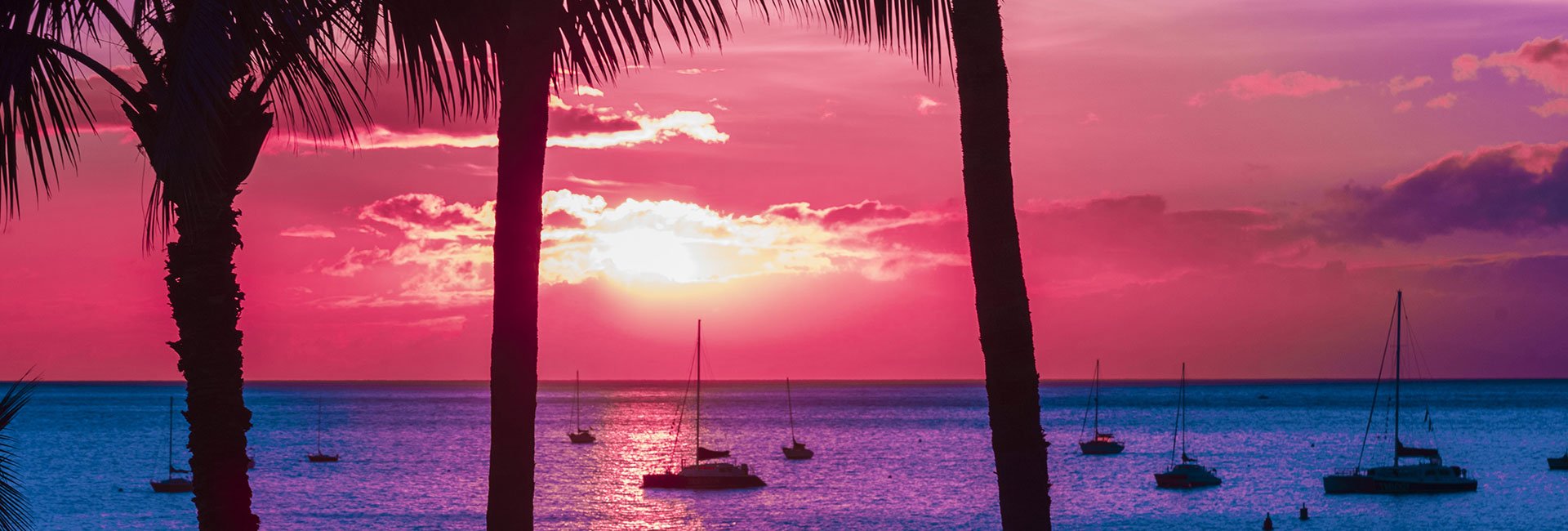
To sail around the world, you will need a captains license!
You will need your international accreditation through the Royal Yacht Association or International Yacht Training if you wish to skipper a yacht or superyacht as a career.
International Certificate of Competence
If you plan to sail your yacht around the world, you’ll have to obtain an International Certificate of Competence (ICC) . The ICC has been likened to an international driver’s license for boats.
If you have your sights set on the waters of Europe and the Mediterranean, you will need an ICC to do so legally. However, it is essential to note that the US and Canada have different international captain license requirements and do not recognise the International Certificate of Competence.
You will have to contact a Royal Yachting Association affiliate to obtain an ICC in North America.
COCs - start your captain's license from the beginning
The various Certificates of Competence are progressive, so it makes sense to start with your Day Skipper’s license , and progress to your Yacht master Offshore captain’s license from thereon.
An important consideration to keep in mind is that the Certificate of Competence you select will very much depend on your individual needs and circumstances.
For example, the requirements for a Recreational Sailing Certificate of Competence differ from a Commercial Sailing Certificate of Competence . So, your motivation (recreational, commercial or professional international sailing) will determine which skipper training course you select.
There are also some necessary prerequisites that have to be met before any sailor can apply for skipper’s license training. They are:
- All candidates must be at least 16 years of age
- For ocean sailing, candidates need a radio operator’s certificate valid for operating a marine VHF radio in South Africa
- All candidates will have to pass a basic eye test. If you are colour blind, you will not be able to proceed past the Day Skipper Certificate of Competence
- Candidates for the Coastal Skipper Certificate of Competence and above must have a current and valid Level 1 First Aid Certificate
- All candidates will have to produce a logbook of experience to get their qualification. The required expertise to be logged varies depending on the certification course.
Here you will find lots of information on the various sailing Certificates of Competence (or skipper tickets, as they are also known) available to you.
Just keep in mind that such certificates (and what they will legally qualify you for) vary from country to country.
If you are a non-SA citizen, you will have to research your country’s legal requirements for the various sailing Certificates of Competence.
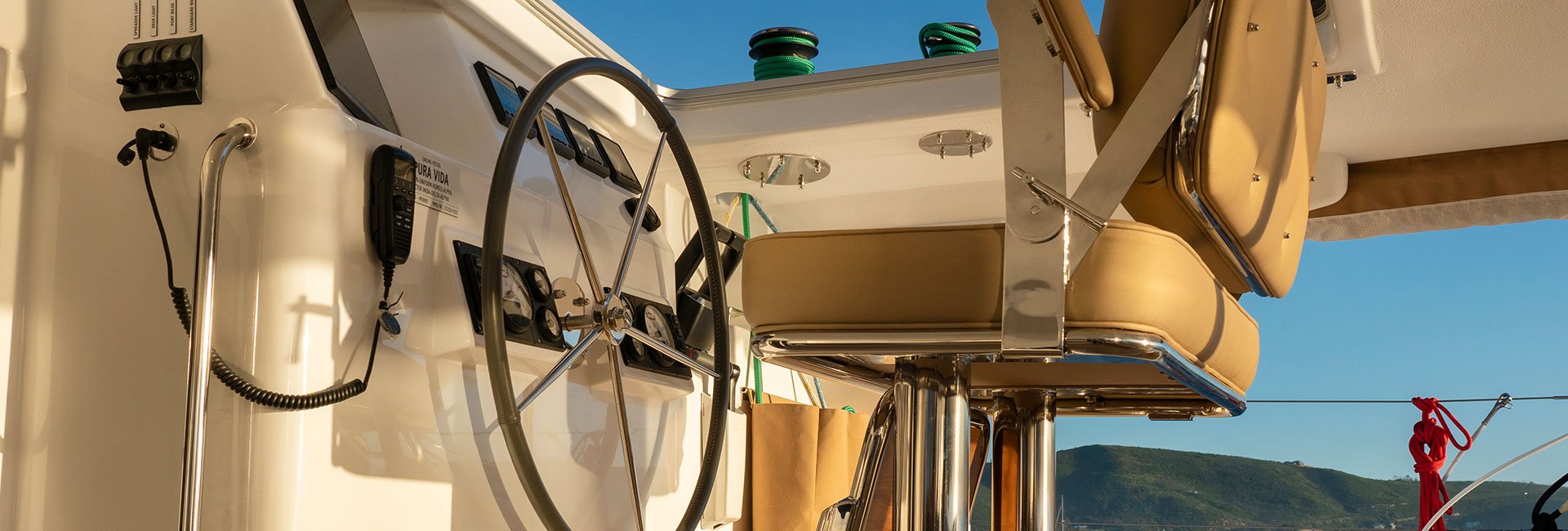
How long does it take to become a yacht captain?
This will depend on the skipper’s course you decide on. To obtain certification in basic sailing skills is quite affordable and could take as little as three weekends to complete.
Courses like the Yachtmaster Ocean Certificate of Competence are much more comprehensive, intensive and costly. This course takes about 17 weeks to complete.
Why getting your skipper’s or captain’s license will be worth every cent
Unless you have a sailing crew (including a qualified skipper) at the ready, it will be absolutely worth your while to obtain the necessary credentials to skipper your yacht yourself.
South Africa has many reputable, accredited sailing schools. They can provide you with all the information and training you need to obtain the captain’s or skipper’s license that is right for your requirements.
Undergoing the necessary practical and theoretical training will give you all the knowledge and experience to sail your boat with confidence.
What’s more, your skipper’s license training is likely to be an exhilarating adventure in itself.
It is also an excellent way to meet other sailing enthusiasts who might just become friends for life.
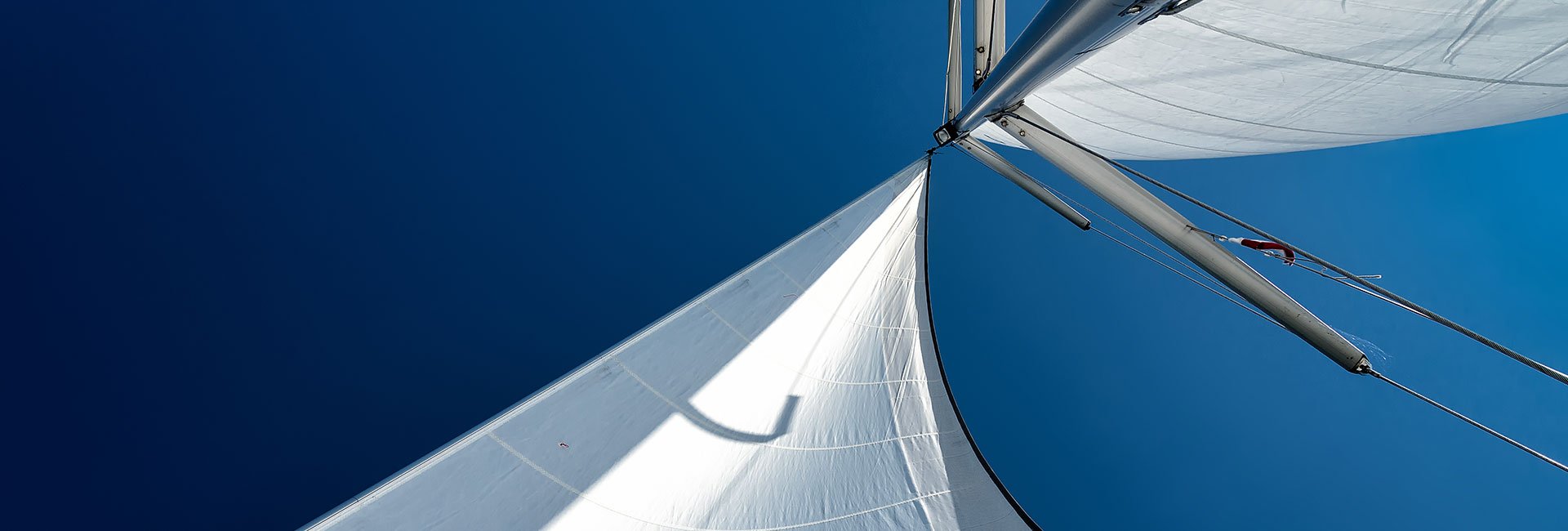
Yacht Maintenance - Top Tips for Protecting Your Investment
Essential things to know about boat insurance, top things to know about yacht solar power, building a yacht: top things to know about the yacht-building process, get all the latest to your inbox, discovery awaits.

- Skip to main content
- Skip to "About this Web application"
Language selection
- Français fr
Name of Web application
Job requirements captain, offshore fishing vessel in canada.
- Description
- Requirements
- Competencies
Find out what you typically need to work as a captain, offshore fishing vessel in Canada. These requirements are applicable to all Fishing masters and officers (NOC 83120).
Employment requirements
This is what you typically need for the job.
- Some secondary school education is usually required.
- One to two years of experience as a fishing vessel deckhand is required.
- Captains require one year of service as officer in charge of the watch.
- A Fishing Master's Certificate is required for all occupations in this unit group.
- Marine Emergency Duties Certificate is required by Transport Canada.
- A valid Fishing Vessel Operator Certificate is required for all occupations in this unit group.
- A commercial fishing licence is required.
Source National Occupational Classification

Professional certification and licensing
We don’t have any data on professional certification requirements. This occupation is not regulated in Canada based on our records.
Source Foreign Credential Recognition Program - ESDC
Do you want to work in another province or territory?
If you are already certified to work in a regulated occupation in your province or territory, it will be easier for you to have your certification recognized in another province or territory. See the Workers Mobility's website to learn more.
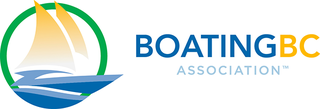
- Vancouver International Boat Show
- Boating BC Conference
- Become a Member
- Sector Groups
- Grants & Sponsorships
- Just Add Water
- Get Certified
- Rent or Charter
- Owning a Boat
- Boating Destinations
- Power Boating
- Boat Safe BC
- Shared Waterways
- Boat Disposal
- Transport Canada Abandoned Boats Program
- Green Boating
- Boating Etiquette
- Protect Our Marine Mammals
- Boating Member Map
- Job Postings
- Apprenticeship Programs
- Glenn Spartz Scholarship
- Member Savings Program
- Promote Your Membership
- Member Documents
- 2023 Boating BC Conference
- Annual General Meeting
- Member Website Manual
Get Certified | Boating BC Association

GET CERTIFIED
Boat with confidence.
Boating is most enjoyable when you’re well-trained and confident in your knowledge and skills. Depending on the type of boating you enjoy, and the level of difficulty you intend to embrace, there are many courses available from basic through advanced training to coastal navigation, anchoring and docking.
START WITH YOUR PLEASURE CRAFT OPERATORS CARD
A Pleasure Craft Operators Card (PCOC) is your Transport Canada (TC) accredited proof of basic competency to operate a power-driven vessel of any size in Canada and is only the first step in your journey to become a confident boater. We recommend additional training for anyone who plans to spend more than a few hours out boating.
You can get your PCOC card by taking an in-person or online course and successfully completing the exam. The card is good for life and is enforceable – if you’re out on the water, make sure you keep it handy as you can be pulled over and asked for it by law enforcement or volunteer officers.
If you are renting a boat for a short period of time, a PCOC is not required by TC. Rental companies are equipped with a TC safety check list, which they’ll walk customers through before heading out.
PCOC is a Transport Canada accredited, for more information, read their detailed FAQ’s .
You can take the PCOC course and exam with these course providers .
BOATING BC EXCLUSIVE - RECEIVE 53% OFF YOUR PCOC LICENSE

Boating BC has partnered with MyBoatCard.com to get you 53 % OFF your Official Canadian Boating License . MyBoatCard.com makes it quick and easy to obtain your boating license online. Risk Free. Free Retries. Use discount code BOATINGBC at checkout. Your boating license, also known as a Pleasure Craft Operator Card , never expires and is valid throughout Canada.

Aceboater is proud to offer you a 55% discount on your online course to obtain your boating license . To obtain the discount, enter code BOATINGBC at checkout.
CanadaBoatSafety.com is a BoatingBC partner, and is proud to offer an over 30% discount to obtain your boating licence .

Only $28.99 for Official Transport Canada-accredited Course, Exam & Boat Licence (known as the Pleasure Craft Operator Card). Includes unlimited exam retries.
Use the coupon code: BoatingBC
Get your Canadian Boating Licence online today! Your Boaters Card never expires and is valid throughout Canada. Click here .
Canadian Power and Sail Squadrons

WHAT OTHER BOATING COURSES ARE THERE?
In addition to your PCOC, additional training is highly recommended for all boaters. Courses are available at these schools in BC and include hands-on training and classroom instruction on everything from how to skipper or crew a boat, operating a marine radio, how to dock, trailer, anchor etc.
Training programs are available from the most basic skill level up to Yacht Master Certification and, as each school calls their courses by a different name, we recommend you contact a school close to you to learn more.
Wherever you choose to take your instruction, you’ll want to ensure that your training provider is certified by BC Sailing (Sail Canada), International Yacht Training or International Sail + Power or Canadian Recreational Yachting Association .

MEMBER DIRECTORY

Boating BC's 300 businesses represent all sectors of the recreational boating industry in BC!
You can search for boating services in your region.
How To Get Your ICC Certification (in 8 Countries)
Understanding how to get the International Certificate of Competence can be complex. Different countries issue them differently. In this article, I'll list the exact process for 8 different countries.
How to get your ICC certification? In most countries you can simply apply for an ICC if you have the correct national boating licenses. However, some countries, like the US, can't issue the ICC. Luckily, there are alternatives available, like the SLC or IPC.
For each country, the process is somewhat different, and the licenses required are named differently. So I've compiled a list with all the different national licenses you can use to get yourself an ICC or an alternative international license.
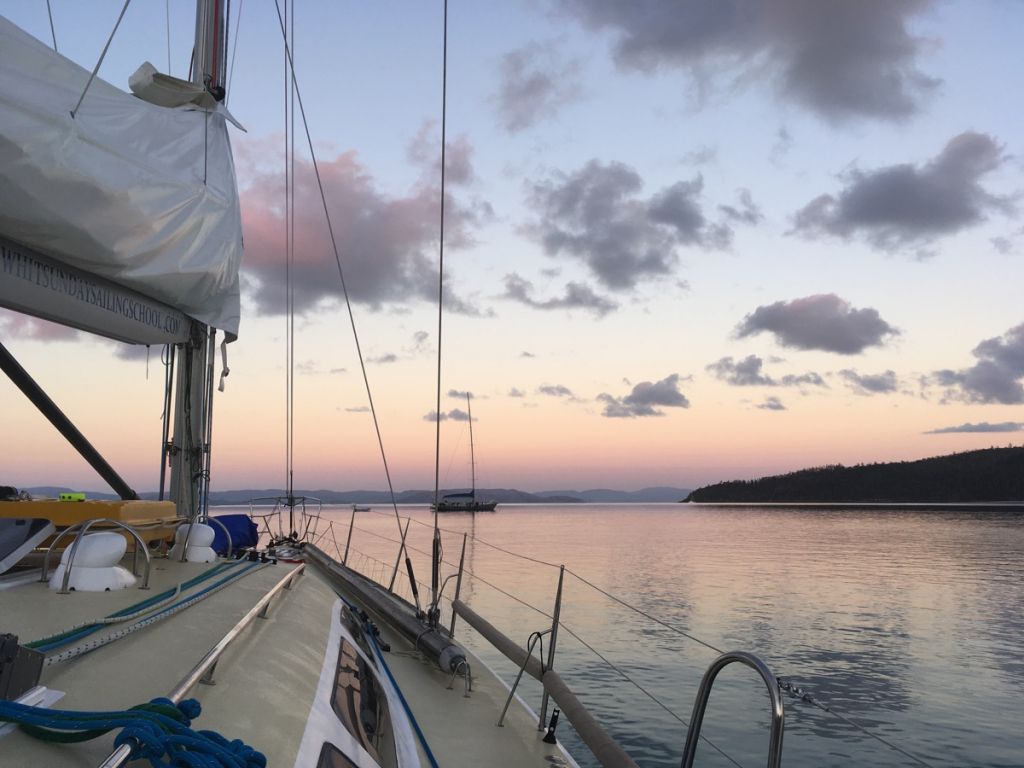
On this page:
How to get your international license, united states, united kingdom, switzerland, the netherlands.
The ICC is the International Certificate of Competence for Operator of Pleasure Craft . You'll want to get this if you're planning on sailing international or coastal waters or chartering boats in Europe, for example.
The ICC is an internationally accepted sailing license. Most countries accept the ICC. There are some exceptions, but in practice, even in these countries, most charter companies will accept the ICC as sufficient proof of sailing experience.
In most countries, you can get an ICC by getting the right national boating licenses. After that, you can simply apply for an ICC with the right authorities. OR you automatically get the ICC, if it's integrated with the national license.
For example, in The Netherlands, you simply obtain Boat License I + II. The ICC is integrated with the national licenses.
The Required Licenses for 8 Different Countries
Here's a comprehensive table of the different ways to get an international sailing license in different countries:
I'll discuss each country in detail below.
The U.S. hasn't signed UN Resolution 40 (UNR40), which means they can't issue ICC's.
This makes it difficult for U.S. citizens to get an ICC. In theory, you could get an RYA Day Skipper course and apply for an ICC with the RYA. They have certified U.S. partners. However, it's only in three locations, so not always a practical option.
Luckily, there are some other options.
International Proficiency Certificate (IPC)
Your first alternative is to get an International Proficiency Certificate (IPC) instead.
The IPC is issued by ASA (American Sailing Association). You can apply for one here .
To apply for one, you must be a certified ASA sailor with at least ASA 101, ASA 103 and ASA 104 certifications.
Sailing License and Credentials (SLC)
NauticEd's International Sailing License and Credentials (SLC) is another good option. The SLC is a valid international sailing license. It's probably the easiest and least expensive option for US residents.
It's a great alternative if you already have a lot of practical experience. You do need to do a one-day practical assessment (takes about 6 hours), and have a national (state) boating license.
The cool thing about this license is most of your training is online. You simply take NauticEd's Bareboat Charter Master Course . This bundle of courses will take about 40 hours in total, and goes over all the nitty-gritty of sailing theory. So you'll be sure to be up to date.
And it's pretty affordable too, at $175.
If you need more information before signing up for a $175 course, make sure to read William's in-depth NauticEd review , in which he goes over most of the courses.
- Read more on the SLC at NauticEd here .
- If you want to try out NauticEd's course system, you could sign up for two completely free courses first (opens in new tab).
Get Your State Boating License First
Regardless of the course you end up taking, you should probably first get your state boaters license. This is cheap and easy: in most states, you can learn and take the exam online. If you want to learn what State Boaters License you should get for your state, please check out my article on the boating licenses for all 50 states here .
More Detailed Step-By-Step Plan
If you're looking to learn to sail from scratch, but don't know where to start, I have written a detailed e-book that contains actionable step-by-step lesson plans for different budgets and situations. This book will save you hundreds of dollars, hours, and a headache. You can get it here. Please check it out. You will support our work, and more importantly: it will help you get started much quicker and cheaper.
In the United Kingdom, the RYA issues the ICC. You can apply for the ICC if you have an RYA Day Skipper certification .
If you don't, you could also take a special ICC Assessment at an ICC test center.
You can apply for an ICC here (opens in new tab).
Canada can issue ICC's. If you want to be able to apply for one, you'll need to have finished the RYA Day Skipper Theory & Practical course.
If you already have sufficient practical skill and theoretical knowledge (similar to RYA or higher), you could also take a one-day ICC assessment. These typically take about 6 hours and cost about $600.
This is the cheapest way IF you already have the experience that's required.
Australia can't issue ICC licenses, but they are partners with RYA. This means Australians can obtain the ICC by successfully completing the RYA Day Skipper Practical & Theory course. After that, you may apply for an ICC through the RYA.
If you already have sufficient practical skill and theoretical knowledge (level RYA Day Skipper or higher), you could also take a one-day ICC assessment. These typically take about 6 hours and cost about $600.
France issues their own ICC licenses. To apply for an ICC there, you first need the national boating license.
LE PERMIS PLAISANCE - extension Grande plaisance fluviale
This extension translates to Pleasure Craft Great Rivers. It will get you the ICC Coastal waters permit.
Ireland issues their own ICC licenses. You'll have to complete a special training course for Boating Abroad at the Irish Sailing Assocation.
To find training locations and apply for a course, you can check their website here .
Switzerland issues their own ICC licenses. You will get the ICC card after obtaining the national boating license.
The national license you'll need is called:
Hochseeausweis (Swiss Certificate of Competence for Ocean Yachting)
It's issued by the Cruising Club der Schweiz (CCS) in Bern.
To get this permit, you'll need to prove 1000 miles of sailing experience and pass a theory exam. Please note, inland miles are excluded; you have to prove 1000 miles of sea experience.
Alternatives to getting an ICC are:
- Sportbootfüherschein See (SBF Germany)
The Netherlands issues ICC. Here, the ICC is integrated with the two national boating licenses (I and II). In order to sail coastal waters, you'll need both. After obtaining both licenses, you automatically receive your ICC.
The official name of the licenses are:
Vaarbewijs I - or: Boat license I Vaarbewijs II - or: Boat license II
Hi, I am a Brazilian expat living in the Netherlands. I have sailed for about 30 years back in Brazil and I would like to know if there is a way of getting an ICC license to sail leisure crafts in the Netherlands (and eventually Europe) through an exam in English (in the Netherlands), as I am still beginning to learn Dutch. Thank you very much.
John Morten
Hva med Kroatia ?. Jeg Har D5LA- ICC utstedt i Norge. VHF. IMO Krise å beredskap.
Doug F Schwartzsmith
I am going to redo some training. Is it true that the SLC certification offered by Nauticed is very widely recognized and accepted throughout the world for chartering (along with one’s on-the-water resume of course). It is created in the USA because the ICC and RYA are unavailable in USA (at least this is what I think is true). I’d like to get something that is known in as many locations as possible! Thank you for your time. Aloha, Doug
Marie-Jose van Rie
I am an avid sailor and a professional translator and interpreter of English. I am looking for an English language textbook about the basics of motor boating and sailing( technical details, priority rules etc) that can help me prepare for interpretation services at the Dutch CBR, the institute that issues the Dutch Vaarbewijs I and II (Sailing licenses I and II). who can help out? Thanks in advance.
Jon Bayliss
I have held an RYA Yactmaster Offshore Certificate for many years but I now wish to sail the inland waterways in Europe. I can take the CEVNI on line with no problem if necessary. My boat is registered in France where I live. What is the easiest way to get an ICC? Many thanks for your help.
Leave a comment
You may also like, 14 beautiful places to sail on the u.s. east coast.
The East Coast of the United States has some of the more delightful and varied sailing grounds in the world. Whether you're looking for the secluded quiet of a …

9 Practical Tips & Locations for Sailing the Mediterranean

15 of the Most Fun Sailing Towns in the UK (and why)
Own your first boat within a year on any budget.
A sailboat doesn't have to be expensive if you know what you're doing. If you want to learn how to make your sailing dream reality within a year, leave your email and I'll send you free updates . I don't like spam - I will only send helpful content.
Ready to Own Your First Boat?
Just tell us the best email address to send your tips to:

How to Get Your Captain’s License –A Step-by-Step Guide
From captain requirements to the coast guard application process – how to navigate the process of becoming an official boat captain.
Like all other areas of professional endeavor, getting a Captain’s license is an essential and non-trivial process. Despite the years between my earliest thoughts on having one and actually applying…or perhaps because of that time…I am quite proud to call myself Captain !
From the time I was Quartermaster aboard the Chesapeake Lightship back when she was berthed in Washington, DC, I had wanted to get my Captain’s license. We in her crew had plenty of sea time. The late Capt. Joe Murray, John Hart, and particularly Chris Krusa saw to it that each of us developed our skills and knowledge beyond the minimum that we needed for our jobs. We met collectively with a Coast Guard officer to explore the options for us all getting licensed; however, the wind was taken out of our sails so to speak when he told us that since most of us were not 18, we were not entitled to take the written exam.
I left that session crestfallen but I put it all behind me as I moved on with a career in research physics. Later, I learned that what the officer SHOULD have said is that if we had just waited (a few months) until we turned 18, we could have taken the exams. Years later, my problem was that I could not meet the requirement to have 90 days of sea time in the last 3 years. My employer would have more than frowned on my having been gone so often. And all of us had not even bothered to ask for sea service forms or letters to document our time on the Chesapeake.
Fast forward 34 years and serendipitous events led to my being able to get signed sea service forms for my time on the Lightship. Shortly thereafter, I became a boat owner WITH vacation time afforded to a very senior engineer in the company.
Long story short, I am Capt. Rob Chichester – 200 Ton Master with Auxiliary Sail and Assistance Towing Endorsements.
Navigating the path to a Captain’s license can be full of the brambles of regulations, forms, and oddly worded requirements. In this article, I will try to clarify the process and help interested skippers decide what type of license, scope, and tonnage they should pursue. Then I will discuss the application process and all the elements needed to assemble a successful license application package.
More Resources: If you would like a one-on-one consultation to have your specific questions answered on this topic or others related to boating, please sign up for 30 minute video consultation with me!
The Basics of a Captain’s License
A first time applicant will need to decide while type of license to pursue. There are two types available to one applying for a new license.
- You may apply for a license to be an Operator of Uninspected Passenger Vessel (OUPV) or the more familiar “Six Pack” license. It is so called because the holder of this license is limited to carrying no more than 6 paying passengers on any vessel within his tonnage rating regardless of the maximum capacity rating for the vessel.
- The other option is a Master’s license which allows you to carry up to the maximum number of passengers indicated for the vessel in question. Whereas a Master’s license requires US Citizenship, an OUPV license holder can be non-US citizen. Clearly holding a Master’s license offers more opportunities; however as I will explain later, the knowledge requirements are appropriately greater.
The scope or route for one’s license is the waters in which you are authorized to function in your licensed capacity.
There are effectively three such areas defined:
- The first is Inland which covers all inland rivers and bays not otherwise outside the demarcation line for the high seas. This may also include portions of the Great Lakes up to the International boundary line. (I will not explicitly discuss the Great Lakes or Western Rivers in this article but those waters are also covered by an Inland scope with a specific endorsement for each.)
- The second route is near-coastal which means ocean waters not more than 200 miles offshore. By extension, a near-coastal route endorsement includes inland waters as well.
- Lastly, Oceans refers to all waters seaward of the Boundary Lines as described in 46 Code of Federal Regulations (CFR) Part 7.
Tonnage rating is determined by the size vessels upon which an applicant has served. The tonnage is not simply the weight or displacement of a given vessel. It is not how much stuff you had loaded on a boat. It is a calculation of theoretical displacement if the complete available interior volume of a ship were filled with material of density 1 (i.e., water).
There are formulas available to estimate that based on the dimensions and type of boat. The calculations are necessarily different for a sailboat and a power boat. On a very rough order of magnitude, a 100 Ton powerboat would be about 80 feet long and a 100 Ton sailboat would be about 100 feet long. The tonnage rating is a not to exceed limitation.
One need not necessarily serve on a 50 ton or 100 ton vessel to earn the equivalent tonnage rating (see the table below for specifics on that). One cannot be granted more than a 100 Ton rating on an initial license because higher tonnage requires that one has served in a licensed capacity before applying for the higher tonnage. When I renewed my license in November, I applied for a 200 Ton rating which was granted conditional to my successfully passing the mandated written test. By the time you read this, I expect to have taken that exam.
Tonnage and route are determined by one’s documented experience. While you may apply for a 100 ton rating, you may only be granted 50 tons (or less) if your experience does not justify the higher rating. Additionally, the greater the scope, the more sea time is required to qualify for the rating.
For example, while an Inland scope needs 360 days of total sea time with 90 days in the last 3 years, a near-coastal scope requires 720 days and again the 90-day recency requirement. The take-away here is that experience is a big determinant and should NOT be discounted in any way. Note that there is no path to being granted an Ocean scope except by being a licensed mate or master for at least 2 years with documented service on those waters. That is, it is impossible to apply for an Oceans scope on a first application.
It should be noted that an OUPV license is automatically issued with a 100 Ton rating. As coarse as this may sound, the reason is that it is assumed that with an OUPV license, the most damage one can do is to 6 people. Therefore, there is no particular benefit to issuing OUPV with varying tonnage ratings. New Master’s licenses are issued with ratings of 25, 50, or 100 tons. Discussions of ratings over 100 tons or Ocean routes are beyond the scope of this article. You may contact the author if you wish more information on those specific topics.
The table below is a guide to determining for what rating one may qualify.
Your Sea Time Experience
For a Near Coastal route, ideally, all of your time will be on Near-Coastal waters; however, you are allowed to substitute up to half of the 720 days required minimum with Inland route service. For the purposes of documenting sea time for a Near Coastal route, any time served beyond the 3-mile limit counts for that purpose. So if you charter in the Caribbean or crew on an offshore fishing trip, that time counts.
Just to be clear, sea time is not counted unless you are a working member of the crew of the vessel named on the sea service form. That is to say, just being a passenger is not sufficient.
To keep things on the up and up, the applicant is required to get the signature of the owner, manager, or master of the vessel on the sea service form. If the applicant owns the identified vessel, proof of ownership must accompany the form. Proof might be a Bill of Sale, vessel document, or a state registration.
Sea time is not counted unless you spend at least 4 hours of a given day underway . Being onboard the boat at the dock swabbing the decks does not count. Time underway is counted whether it is in route or adrift. Being anchored or moored also does not count. It can be tedious to collect and collate all of your sea service forms, especially after the fact. My best advice is even if you are only thinking about getting a license, keep blank sea service forms with you for the vessel operator to sign at the end of a trip. Note that the forms are not per trip but per vessel. There is room to document up to 5 years of sea time on any given vessel. There is room for five years of data because your license will be up for renewal every 5 years .
Technically, vessels over 200 gross tons now require a Service Letter from the employer or vessel manager. However at the time I applied for my original license, I submitted my time on the Chesapeake Lightship on a Sea Service form (CG-719S). That form was accepted for that as well as again when I renewed and requested an upgrade to 200 Tons. I may have been grandfathered so new applicants should verify their individual situations with the National Maritime Center .
Health and Medical
To be a Captain, one must be in good health and of reasonable physical ability. The Medical form ( CG-719K ) is the most extensive form one will need to complete. It also requires the signature of a licensed physician. Unlike an FAA pilot’s license, the physician need not be approved by the US Coast Guard. Your family doctor is acceptable.
For my part, I completed as much of the form as was reasonable. I then FAXed the form ahead of my annual physical so that the doctor could review what was needed and to be prepared to sign off on it. The only extra thing the doctor had to do was conduct color vision and standard wall chart vision test. Your vision need not be perfect without glasses but if that is the case, you should expect a requirement to be written on your license requiring corrective lenses to be used and a spare pair to be available when on duty. If your medical form is accepted, you will be issued a separate medical form which is to be kept with your Merchant Mariner Credential. There is a pocket on the back cover to hold it and the required Transport Worker’s Identification Card ( TWIC ). The TWIC will be addressed below.
Another form to be completed, this time by an authorized physician, is the DOT five-panel drug test . An applicant must submit proof of drug testing with no findings as determined by an authorized physician. Also be aware that to work aboard any vessel in any compensated capacity, you must have proof of participation in a drug test program, whether it be one in which you elect to participate as an individual or one required by your marine employer. Such proof is to be carried with you at all times just as your license and medical certificate must be. It is generally in the form of a letter attesting to your compliance and passing a test within 12 months of the date of the letter.
Criminal and National Security Background
One has always been required to agree to a criminal background and driving record check . As you can well imagine, adverse findings in either of these areas will negatively affect one’s application.
With the creation of the Department of Homeland Security (DHS), a requirement was added that licensed mariners have a TWIC card . In fact, anyone working in the transportation sector (air, rail, marine, trucking, etc.) is required to have a TWIC card. You will be investigated for any evidence of threat potential to national security. This is because as a licensed Captain, you may have access to vital and strategic marine facilities.
The TWIC card is issued by DHS through a federal contractor. There is an application to complete and a fee to pay. Furthermore, you must appear in person so that your photo and fingerprints can be taken. This bio-metric data is stored on the TWIC card and protected by a pass code. You must submit a copy of your TWIC with your license application; therefore, one must start the TWIC process at least four to six weeks or more before submitting one’s license application.
Separately, a photograph of the applicant must accompany the application. This can be a driver’s license or passport photo . It should be a state or federal government issued document. Others may be accepted but the applicant should verify this with the NMC before submitting the application to avoid processing delays.
- Coastal Navigation
- Deck General Knowledge
- Rules of the Road
Deck General includes a wide variety of topics including fire and safety, terminology, and laws and procedures. Rules of the Road covers exactly what it says. Bear in mind that even if you are applying for an Inland or Near Coastal license, the Rules of the Road test will include elements of International Rules. So when you are studying, do not neglect to familiarize yourself with those details. There are some variations in vessel precedence, sound signals, and lights and shapes displayed by vessels.
If you are applying for a Master’s license, there are additional areas of test. The same is true if you are additionally requesting an endorsement for Sail, Auxiliary Sail, or Commercial Assistance Towing. The net effect is more questions overall.
You must score at least 70% in all areas except Rules of the Road for which you must have a minimum score of 90% to pass . Generally, that means you may miss no more than 3 questions to pass with a 90% grade. The Navigation questions will require you to work with a chart to plot position, routes, and so forth.
You may either pay an examination fee to take the exams administered by the Coast Guard or you may enroll in any number of approved Captains’ courses. You will receive a certificate of completion from the school to submit with your application in lieu of the Coast Guard exams; however, you will still take exams which include questions from the same list of questions that the Coast Guard uses. In the latter case, you will not need to pay an examination fee but obviously, you will have to pay a tuition for the course.
Completing your Application
The license application is not unlike many others. It is actually shorter than the medical form discussed earlier. There are two things to note on the application:
- Item 1 of Section IV describes how one may be asked to serve on behalf of the country in times of national emergency. An example of this was the massive sealift conducted in support of the first Gulf war in the 1980’s, Operation Desert Storm. This is a voluntary action. However it should be noted that during the call up for Desert Storm, more mariners were needed than responded. It is a possibility, particularly in these times, that another such national emergency could arise.
- Secondly, Item 5 of Section IV contains an oath to which an applicant must swear. If you present yourself in person you will be sworn in by Coast Guard personnel. If you choose to submit your application by mail or electronic means, you must provide proof that you appropriately took the oath as written. This generally means being sworn by a Notary or a local government official such as a county clerk.
Payment of all required application and examination fees is made online prior to submitting the application. You will receive a receipt which you should include with your application package. Pay close attention to the various fees and be sure you select all that apply but ONLY those that apply. An error either way will delay processing of your application.
Submitting your Application
When you apply for an original license and especially if you plan to take the Coast Guard exams , you will need to present yourself in person with your complete application package at a USCG Regional Examination Center (REC). Photo ID will be necessary as well.
One thing that happens if you appear in person is that you will raise your right hand and take the oath on the application. That was a very moving moment for me. Delivering your application package in person also allows you to interact with the personnel directly which could be very valuable if there are errors or omissions in your application package.
If you are not taking the Coast Guard exams and if you have been sworn by an authorized official, you may wish to submit your application by mail or electronically. Be aware that electronic submission has a limit on the size of the email attachment. My applications have always been larger than what is accepted by the Coast Guard mail servers.
Waiting for Your License
The Coast Guard has implemented a very good system of tracking your application and providing feedback at every step of the way. You will receive emails as the application moves through the system. It may take up to a week for the REC to review and forward your application to the National Maritime Center (NMC) in West Virginia. That was my experience with the New York City REC. It may be less in smaller, less congested venues.
By the way, you are not required to use the REC nearest to you. If you wanted to fly to Hawaii or Alaska instead of driving into Baltimore, you may do so. A good friend of mine drove from New Jersey to Boston to submit his application there because he heard the processing times were less than for New York.
Once the NMC has your package, the process usually will not take long at all. It is very likely you will receive 2 or 3 emails a day, often within minutes, as the application moves through the various approvals. Nothing beats the feeling you will have when you get the final email saying that you have been approved and your credential is being printed!
My original license took slightly more than two weeks from dropping off my application at Battery Park in New York to finding my MMC in my mailbox.
Once you get your license, look it over thoroughly. You may not necessarily have been granted the scope and rating you requested. Sometimes that reduction will be legitimate. Other times, it may be due to an honest mistake. Both my original and renewals had honest omissions. I was only granted a 50 ton rating on my original license when I had applied for 100 tons. I submitted the sea service form supporting the request for 100 tons after the fact and I received an endorsement sticker for the 100 ton rating a week later. Similarly with my renewal, I asked for an upgrade to 200 tons. My renewal was approved at 100 tons. When I contacted the NMC, they amended the approval and showed that I was then approved to take the required test for the 200 ton upgrade. So my message here is to not necessarily accept the delivered MMC as if it were carved in stone.
More Resources from Captain Rob
Being a licensed Captain is a great source of pride to me. I have enjoyed working with my clients as well as pursuing other commercial opportunities like relief captain jobs on various schooners, water taxi and tow boat jobs, and tour boat and ferry captain work. I look forward to many years of working on and enjoying the water.
If you would like a one-on-one consultation to have your specific questions answered on this topic or others related to boating, please sign up for 30 minute video consultation with me!

Recommended Reading
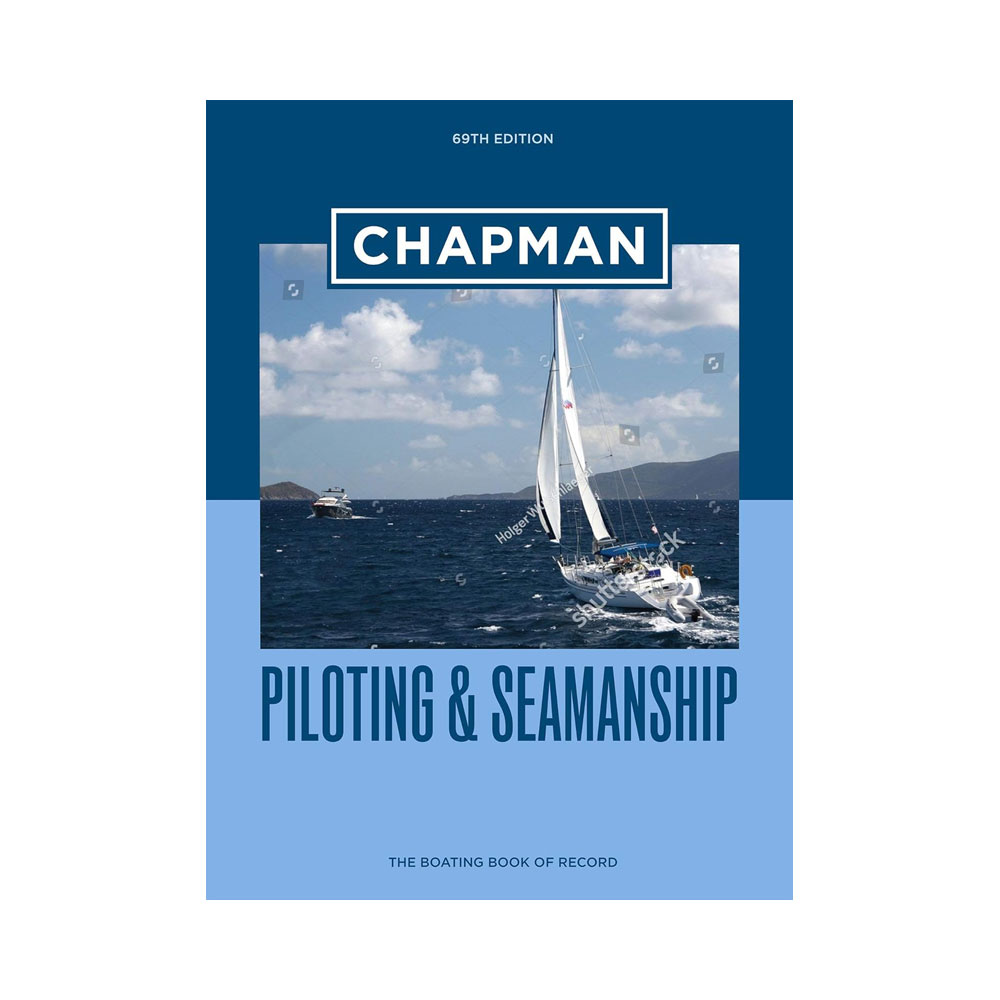
Chapman Piloting & Seamanship 69th Edition
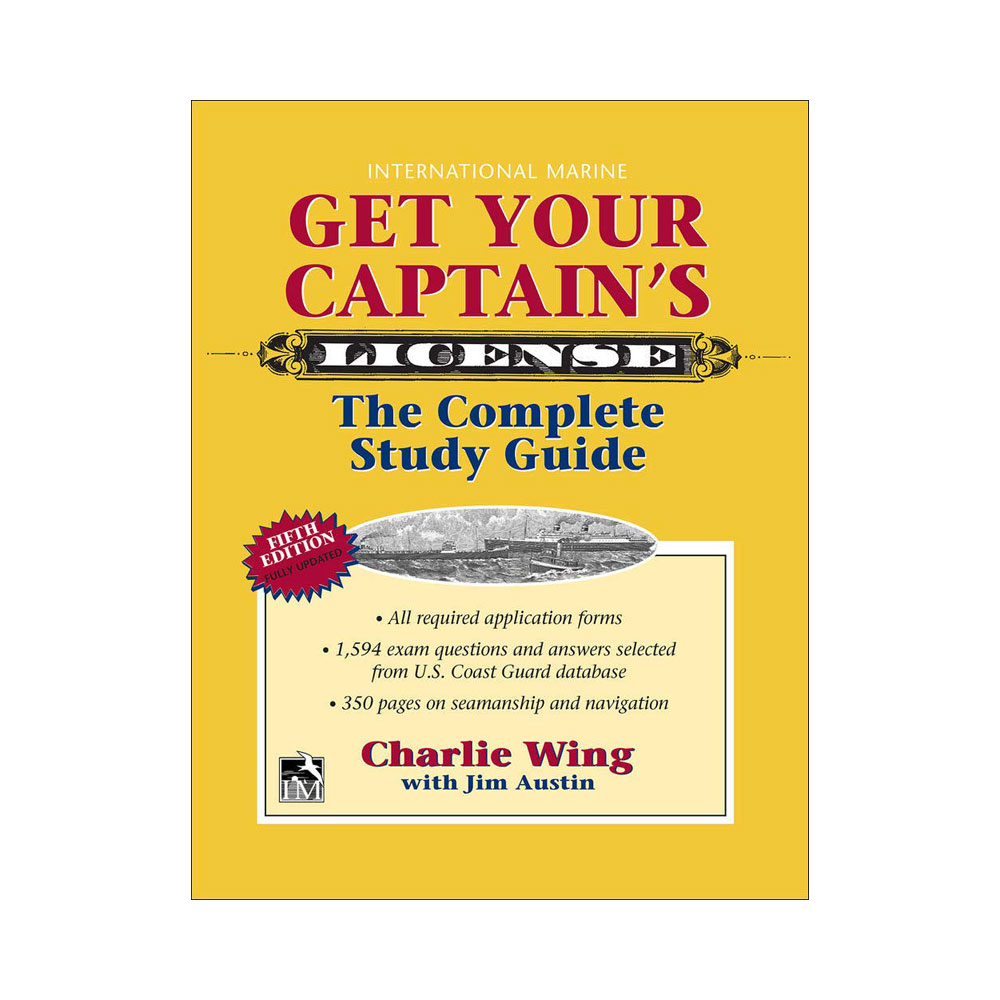
Get Your Captain’s License Study Guide
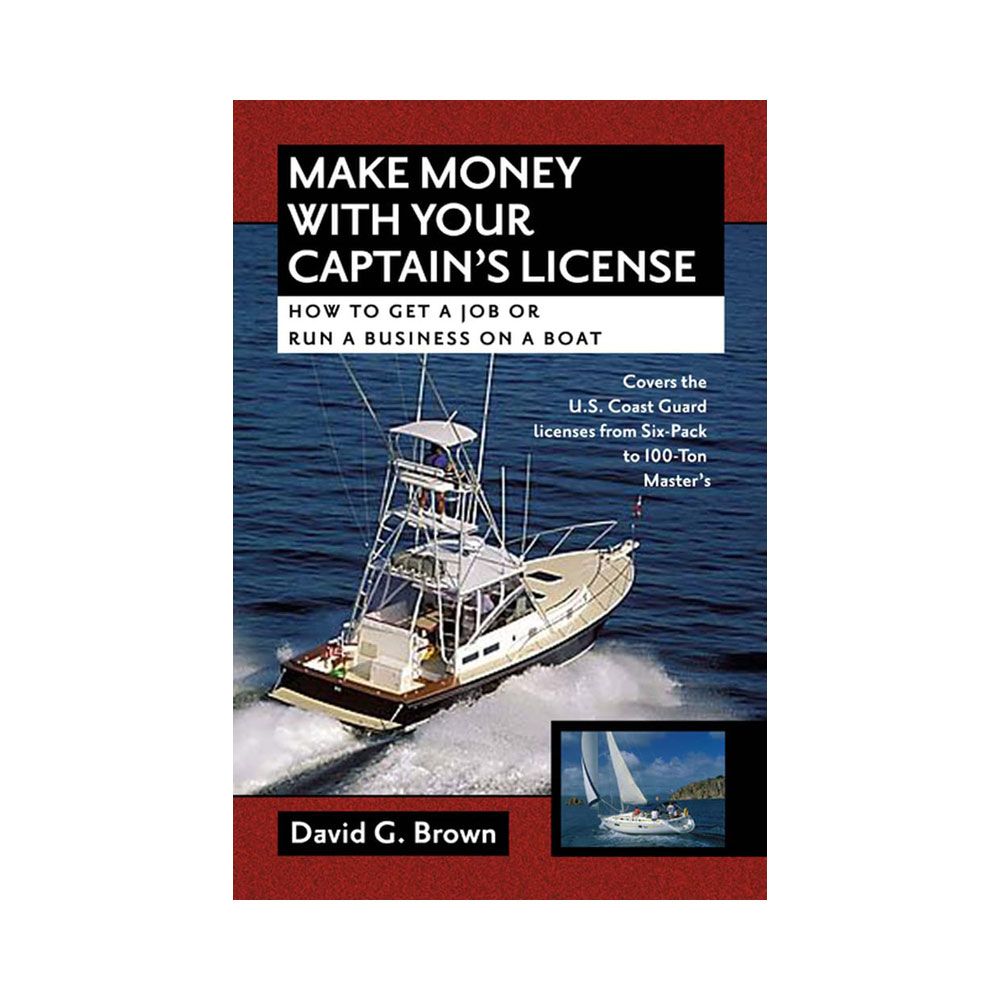
Make Money With Your Captain’s License Book
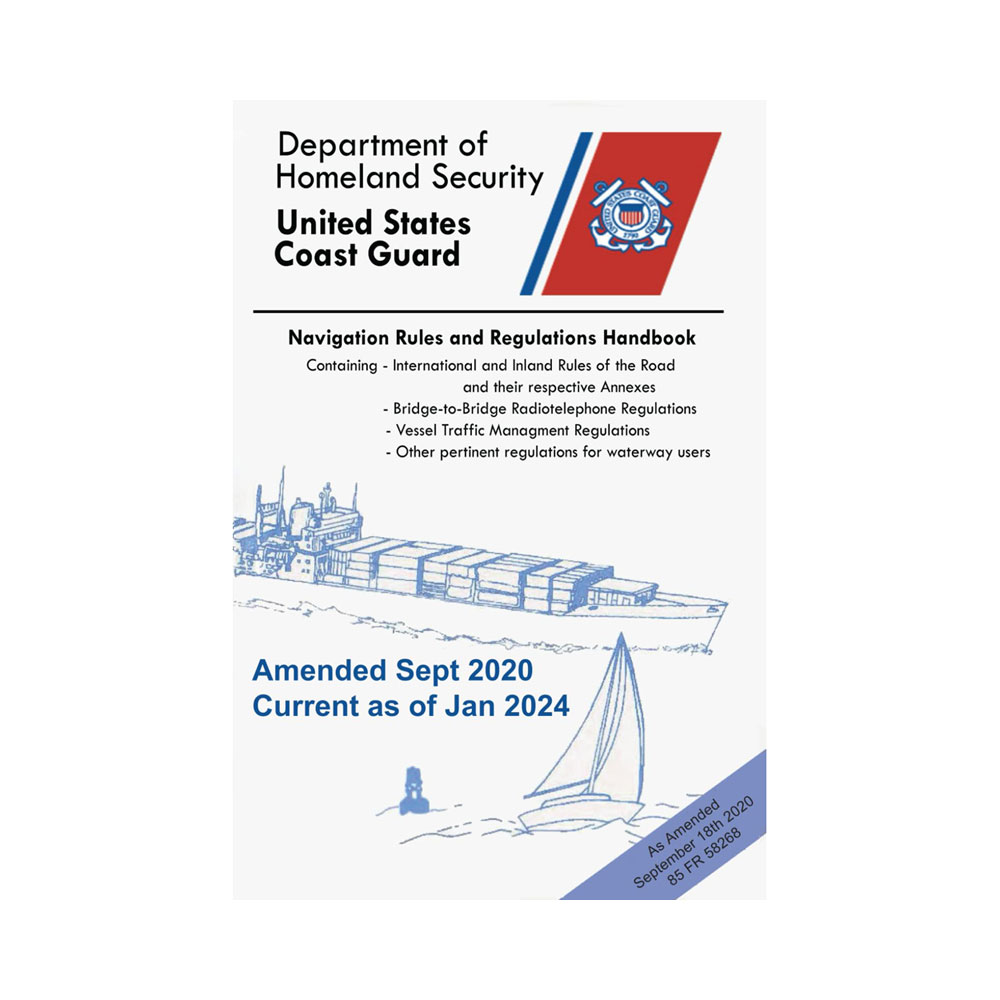
USCG Navigation Rules And Regulations Handbook
Love the boat life check out these picks for your boating lifestyle:.
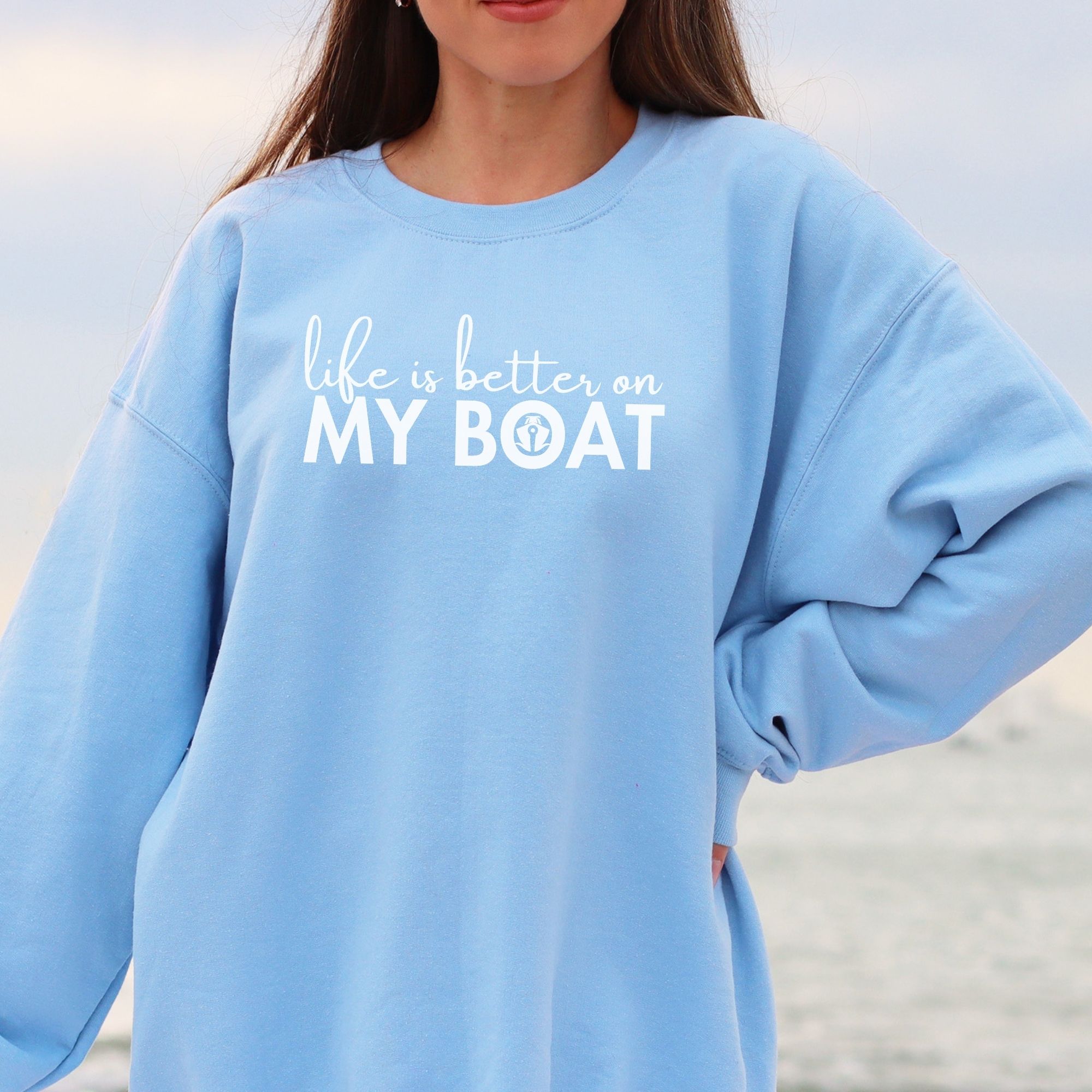
Life is Better on My Boat Sweatshirt
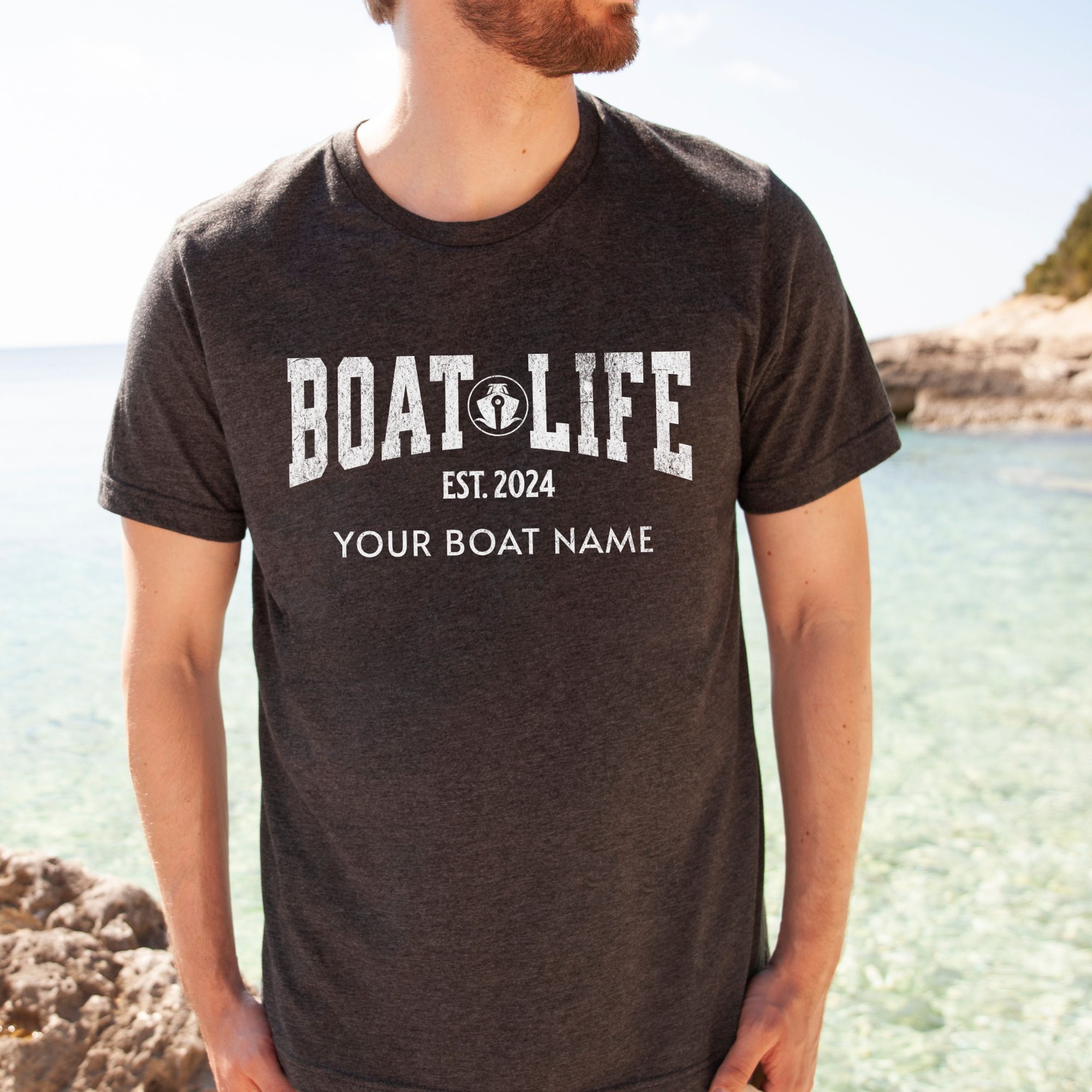
Boat Life Custom Boat Name & Est Year T-Shirt
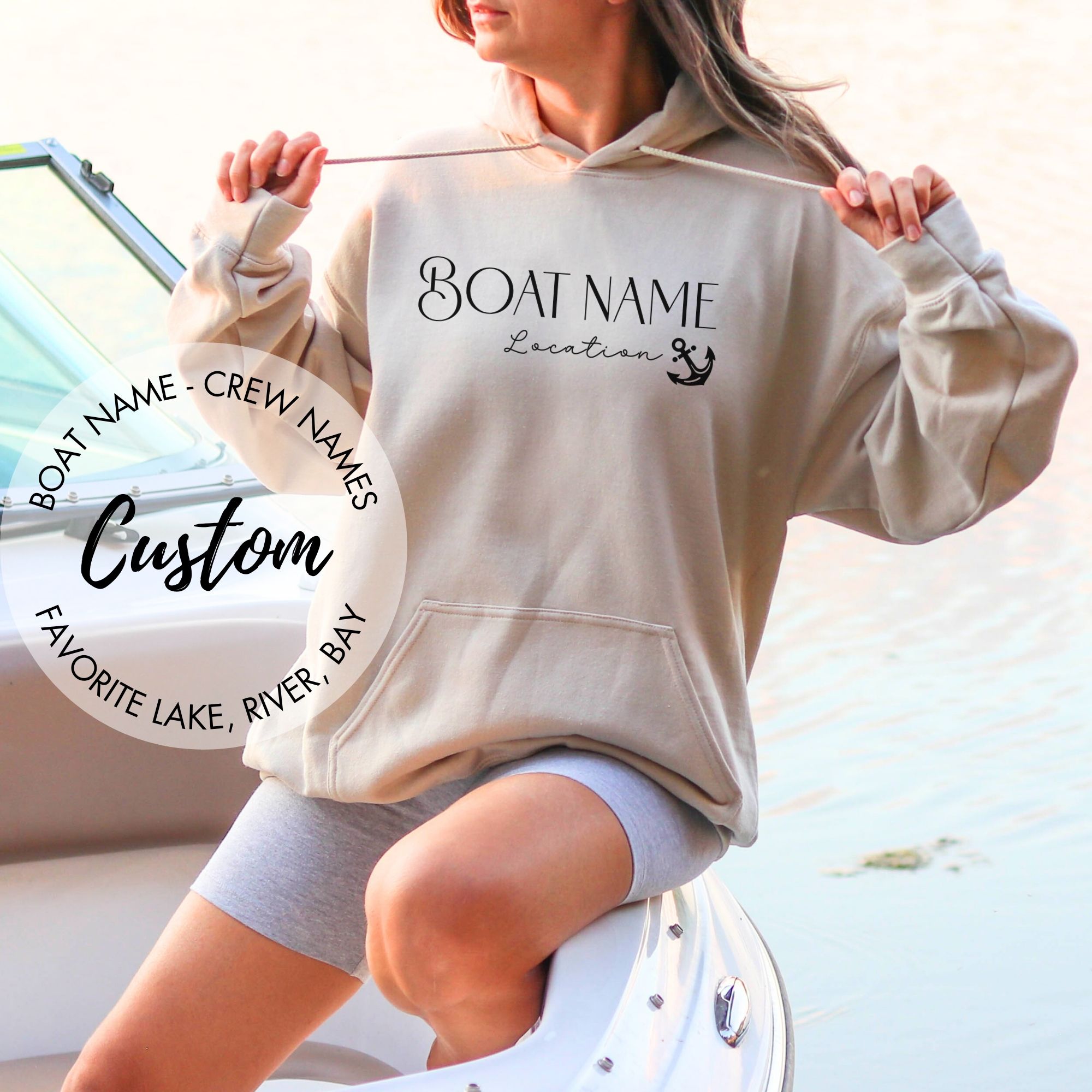
Custom Boat Name & Location Hoodie

Where’s My Drink Honey Boat Life Can Koozie

Capt. Rob Chichester
Related posts.
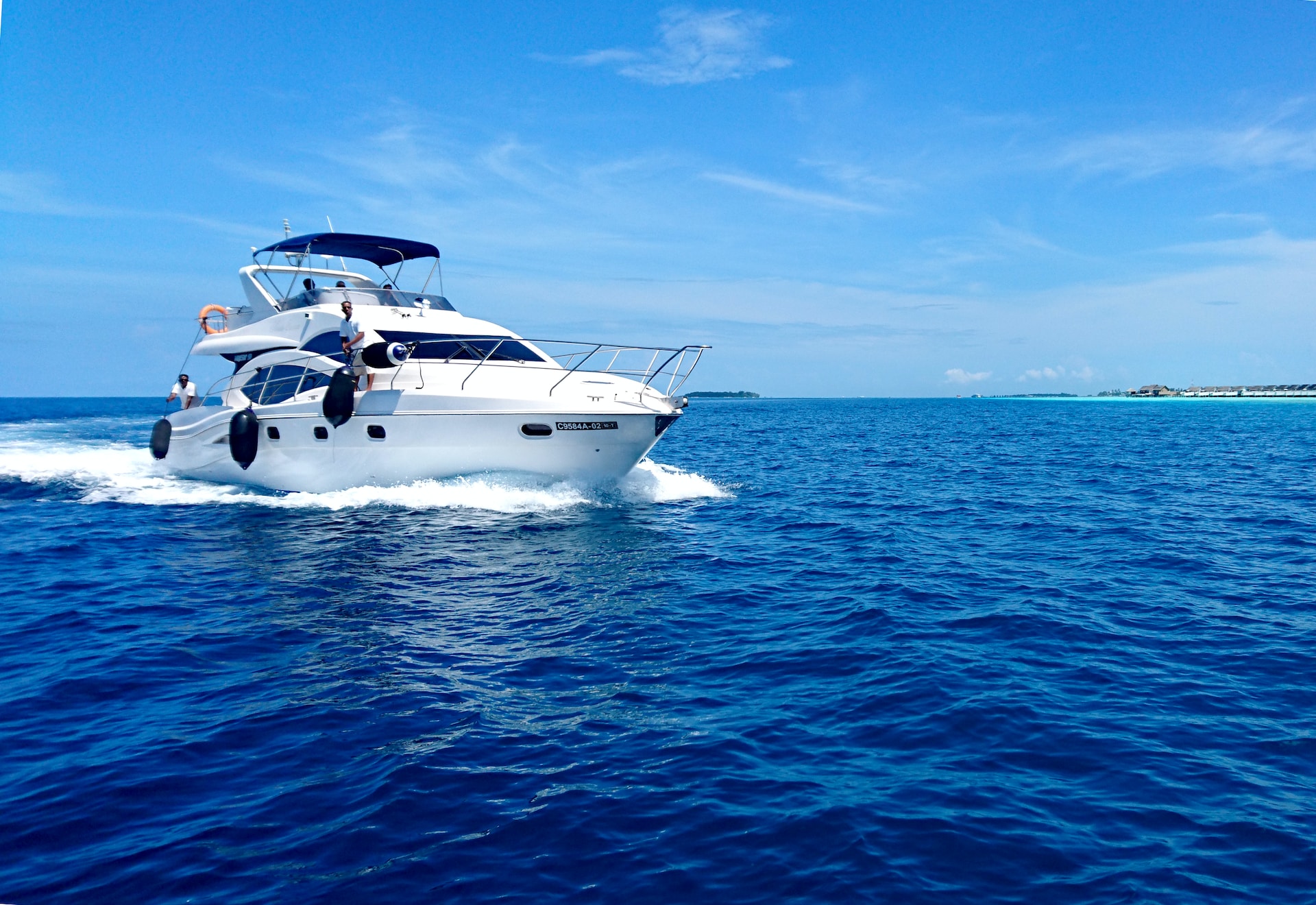
Can I Drive My Yacht Anywhere In The World?
May 11, 2023
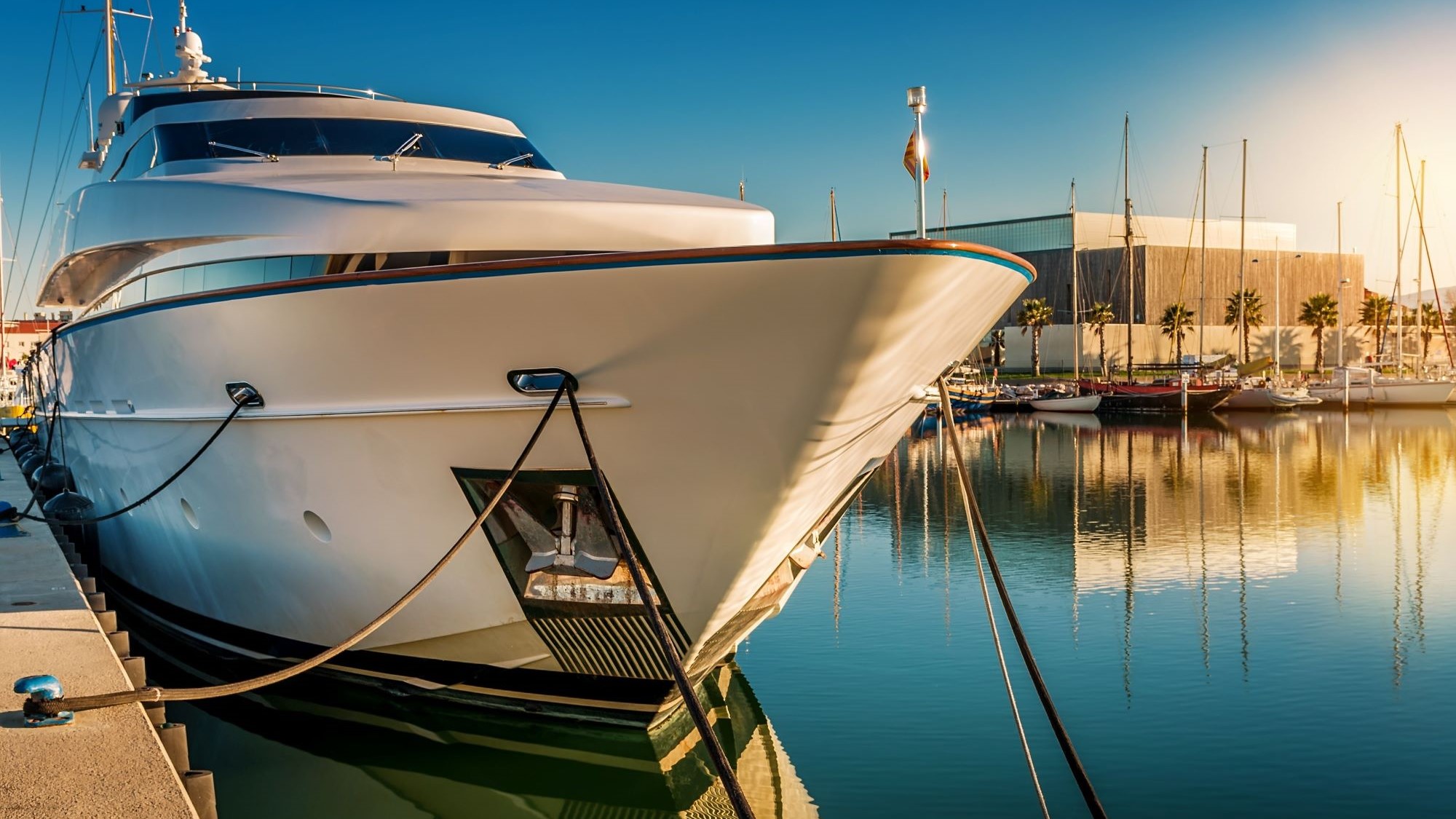
How To Transport A Yacht Safely
April 7, 2023
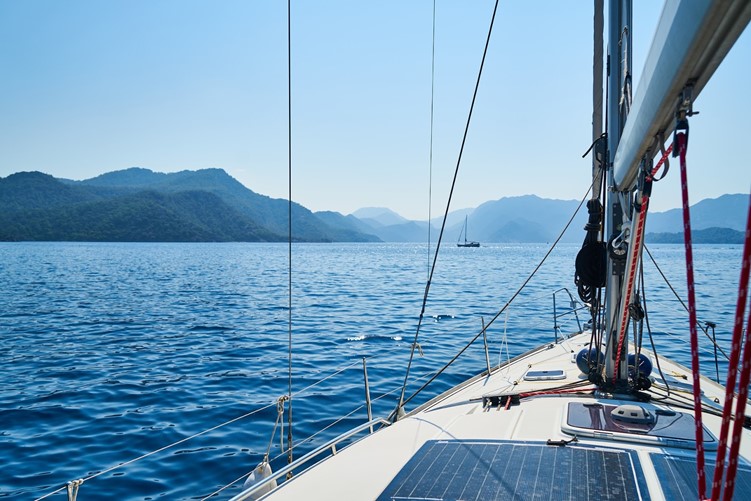
How Hiring a Captain Can Make You a Better Boater
May 29, 2021
24 Comments
Hi, I am hoping you can help me out. I am a USCG vet that was stationed at a small boat station in NJ from 1983-1989. I am trying to get my sea time documented but I am having a very hard time finding out how to do that since the station records were not computerized at that time. I have contacted the NMC and they told me to call the station to get an Abstract of Operations report. They just laughed at me when I called the station. I have requested info from vetrecs.archives.gov but I am sure that will take some time just to get an answer as to wether they can do that or not. I was wondering if you knew how to go about getting the information that I need. I am sure I am not the only person with this issue and I can’t seem to find anyone that knows exactly how to go about documenting that time.
Thanks Jeff

Thanks for your question. I don’t have a lot of advice for you regarding USCG internal procedures. Perhaps you can contact the Office of Personnel and try to get a copy of your service record. Alternatively, is there anyone at that small boat station who knew you? Would the OIC be willing to write a letter? The last and least likely option would be to fill out your own sea service form and see if anyone there would sign off on it for you. Now the regulations speak of a Certificate of Discharge being acceptable. See for example 46 CFR 10.232 ( https://www.law.cornell.edu/cfr/text/46/10.232 ). If you already have that, you might be good to go!
So…start with your Certificate of Discharge and if you don’t have that, then contact the Office of Personnel to see if you can get the requisite documents. Let me know how you make out!
Hi Captain Rob, My name is Elton the 66 year old owner of a small 35 ft. Kingscraft houseboat. I spend a lot of time on one large lake. It is an older wonderful all aluminum vessel but weighs only about 8000 lbs. In the chart the lowest weight rating is 17 tons. I would love to educate myself and become a Captain. Is that possible at some level? I would also have to document my own time as pilot.
Sir, you have open to you both options that I describe in my article. You could pursue either a Master’s license OR an Operator of an Uninspected Vessels license. From what you have written, I see no inherent obstacles. You must be able to document your seatime, get a medical evaluation, and pass the 4 or the 3 parts of the written exam depending on which license you choose to pursue. In any event, you would qualify for an Inland license. Your tonnage rating would also depend on which license you pursue. Solely based on what you have said above, you would qualify for a 50 ton Master’s license. If you pursue an OUPV, that comes with a tonnage rating of 100 tons. For most people, the biggest challenge is acceptably documenting seatime. (It needs all be as captain. You can include time served as master, mate, or crew but NOT as a paying passenger.) If your concern is your age, I know a few captain’s in the 60s and 70s. I am one of the former myself. Good luck!
Capt.Rob I am US Army Veteran And I was wondering if their was a school i could attend to obtain a licence, I ask this because i have to decide what i want to go to school for and this job would be a top pick for me. Any help on this matter would be greatly appreciated thanks
There are MANY captain schools that can help you with the written tests but there are NO schools that can help you with the sea time requirements unless you are considering enrolling in a maritime college like Kings Point or Fort Schuyler in the New York State university system. I used Mariners Learning System for my written tests only because it was more convenient than going to the USCG REC to take the exams.
Where would I get sea service forms . I have owned and operated my own boats for over 30 years and am now being asked to get a captains liscence
There is a link in the article for the National Maritime Center. All the forms you needs can be found on their website. Alternatively, you can search for USCG National Maritime Center with your favorite search engine.
Couple questions. Would working as a divemaster on a dive boat in the Gulf of Mexico count for near coastal sea time? And if you were to have 8 hours of sea time in one day, could you potentially count that as two days at sea? Or would it still be just one day? Thanks for all the info this has been a huge help!
Any time spent aboard a vessel underway counts as long as the owner, manager, or master of the vessel will attest to that. When submitting Sea Service forms, your option for your role aboard the vessel are things like crew, mate, master, engineer, etc. You will need to determine what your position was. Divemaster is not recognized and does not speak to maritime skills necessarily. (For example, you can dive from shore never having been in a boat.) Regarding the near coastal time, you just need to verify that the vessel upon which you served was indeed in near-coastal or ocean waters. The form has spaces for days spent within the specified boundaries and outside those boundaries. I once saw an interactive chart online for finding the boundary lines in a given area. For your purposes, you cannot count 8 hours as two days underway. You need a MINIMUM of 4 hours underway to count that day. Being at anchor or otherwise moored or secured does not count. Good luck!
Capt. Lots of good and helpful info. I boated the Chesapeake for 10+yrs, from the Delaware bay to Virginia in a 27′ cruiser. i’ve not been on the water since 2012. So to be clear, I need to acquire some time on a charter vessel to even attempt the basic “6-pack”. I have my CG boating skills and seamanship certificates,and will work on the CG719S. Living in Florida, lots of opportunity, should have done this sooner !! Thanks
Thank you for your feedback. I am glad you found the article helpful. Apart from documenting your sea time, I found the most labor intensive aspect was verifying that a) I had all the documents that I needed and b) I had correctly completely all of the USCG forms. A lesser challenge may be in determining what correct application fees are. If you are not sure, contact USCG NMC by phone, email, or online chat to get clarification on what fees you have to pay. Good luck!
This is great info..
I am starting out (hopefully) as a plan is due to new lifestyle i desire to get an two oceans open ocean 800 expedition catamaran (again very expensive so fingers crossed) but the plan is while the vessel is being built, i can take several classes and get a few certifications prior to launch, then as life you see everywhere on youtube for example have the vessel at dock, then day trips, then a week trip and just push it a little further until you are ready for the maiden voyage, really looking to live off anchorage in around the philippines / guam area mostly philippines or south pacific area, mostly friends and family but my question is any licence for that type of boat, and also if you have heard of any schools in the philippines? I know they have a few courses that are completely certified like any american school but a fraction of the cost, just curious if any particular licence i need to get or have?
You did not say whether you intended to take passengers for hire. Generally, one only needs to be licensed if you are getting paid to carry passengers OR if you working in more advanced maritime fields like tug boats and large cargo vessels. If you are only operating your private vessel for your own personal or recreational purposes, you usually do not need any kind of license other than possibly taking a multiple choice test on local safety rules and rules of the road. I am not familiar with the licensing requirements in foreign venues like the Philippines. Each nation has its own requirements. I was able to find information at this link: http://www.marina.gov.ph/policies/MCs/mc170.pdf . You may find some useful information in that document.
Good luck! And safe sailing…
Your information was helpful, thank you. I have decided to pursue getting my License but I am starting from scratch. Should I take classes before looking to get sea time? And how does one go about getting sea time with no experience?
Any course work you take will typically culminate in a certificate of completion. However that certificate will only be valid for 1 year. Therefore, do NOT take any exams more than about 6 months prior to submitting your original license application. As for sea time, you can look for marine work that does not require a license like deck crew on water taxis or excursion boats. Time spent on a friend’s boat counts. Have that friend complete and sign a sea service form. Sea time never expires and can be counted from the age of 15. Learn your rules of the road and learn to feel your vessel. Driving a boat is a lot different from driving a car. As a licensed captain, you are expected to step up to the helm and handle the ship with relatively little training time. Good luck!
Great article, thanks for writing it! Does time spent aboard a recreational boat that I own, when I am the only person aboard, count towards sea time? If so how do I document that – there’s no one to sign for the time. Thanks again.
Time spent on your own boat absolutely counts. You would sign the CG-719S Sea Service form yourself where it says Applicant AND where it says Person Attesting to Experience. However, you will have to provide proof of ownership for the vessel. The Bill of Sale is usually what is used but the vessel’s CG document or state registration card should also be sufficient. Remember that seatime is counted only from the age of 15 and it is underway time of at least 4 hours per day. Time on the anchor or alongside do NOT count. The presence of others is irrelevant.
Hi Shane. Sea time is defined as time working aboard in any capacity relevant to the rating you are pursuing. For instance, if you are a bos’n or deck crew, that time it unlikely to count towards a engineer’s license and conversely, time in the engine department or work on mechanical systems would be difficult to apply towards a deck officer’s license. The highest rating one can get on an original (i.e., first) license is 100 Ton Master. It is likely that your Navy time would count; however, your challenge is getting an appropriate service letter from the Navy. You cannot submit a CG-719S for your Navy service as that form is for SMALL VESSEL service. Consult the USCG site at http://www.uscg.mil/nmc for more information. Also note that you may use any valid sea time accrued from the age of 15. Good luck!
Hi Capt. Rob, I have one question rather just some clarification regarding the time at sea, for the tonnage rating. Does “time at sea” mean just that or does it mean operating the vessel. I was in the Navy for several years as an operations specialist and I am not sure what level I would qualify for if I were to pursue getting a Captains license. Also I was wondering how much the entire process would cost.
Hey Rob, Thanks so much for taking the time to write this, it was really very useful to read. This has been on my mind for some considerable time, but I am now finally starting on the road to getting my licence and taking a nautical shift in my career. I have been a sailor all my life, was sailing single handed as soon as I could walk and now own a 38 foot Irwin racer/crusier.
My one big question is online study vs going somewhere to do the required course? I wonder how you gained your licence and what you might recommend?
My issue was primarily NOT wanting to have to take the tests at the NYC REC and to NOT attend intense 8-10 hour weekend classes. I was comfortable with the Rules of the Road and chart navigation issues as well the Deck General material. Since I got a Master’s license (versus the OUPV), there was more legal stuff to know in the category they call Ship’s Business. I did an online course through Mariner’s School in Princeton, NJ. The price was good and the location was convenient for when I did go to take the test.
The bottom line is do what works best for you given what you need to learn or refresh, how much time you have to do it, and where you will need to go to take the final tests.
(Please note that you can submit your application and/or take your tests at ANY REC anywhere. It is not a function of where you live or where you will sail.)
Great article Rob. Thanks for sharing your experience
Thank you for the feedback. Do please let me know if you have any further questions or if I may be of service in some other regard!
Comments are closed.
I am Starting a Boat Tour Business. What Documents Do I need?
A boat tour business will be deemed a commercial operation under the Canada Shipping Act, 2001 and therefore subject to different rules, unlike the transport Canada pleasure craft licence , which is quite easy to obtain. Any waterborne enterprise opened for the express purpose of making profit comes under the banner of commercial. The certification and licensing of commercial vessels depends on different factors, such as intended use and size. All crafts operating in Canadian waters should be registered, but various agencies within Transport Canada deal with different categories of commercial vessels. The official information as set out on the government websites seems contradictory and overlapping. Before venturing to set up your business, it would be worth your while to consult with maritime document and law experts that can guide you as to what boat trip business documentation is necessary. As an example, there are two agencies under which your tour business could fall under.
Canadian Register of Vessels
- The information states that all commercial vessels of over 15 gross tonnes must be registered on that register.
- Any vessel that has a mortgage attached to it must be on the register.
- Also, if the operators or owners intend to take the vessel outside of Canadian waters.
Small Vessel Registry
- All commercial craft of over 15 gross tonnes with ten horsepower or 7.5 kW motors can be registered here
- Other kinds of commercial craft, such as barges, rafts or ferries can also be licensed on that register.
- All Canadian government-owned vessels.
It also states it is not necessary to apply to the Small Vessel Registry, if the craft doesn’t have a mortgage, doesn’t an ‘official’ name or is not going outside of Canadian waters.
Boat Tour Business : Applications
The first step in registering your vessel is to apply for a certificate of registry. If you have changed the use of a pleasure craft to one of commercial uses, then your Transport Canada pleasure craft licence is invalid, and you will have to reapply to the correct register. A change of use from pleasure to commercial craft will entail more documentation and greater detail when filling out the forms. Additional documentation will be required and to ensure the process proceeds smoothly, without delays because of simple mistakes, it would be far simpler and more comfortable to use a registration website such as https://canadianvesselregistry.ca/ to see you through the complex rules and regulations involved in registering a commercial vessel enterprise.
Inspection Certificates
All commercial vessels between 15 and 150 tonnes are required to have inspection certificates by Transport Canada, and this includes vessels of less than 15 tonnes that carry more than 12 passengers at a time. Regular inspections are necessary and will depend on the use of the craft.
Commercial vessels cannot be put into service before being inspected and obtaining a valid operating certificate. After the first inspection, all subsequent inspections are the owner’s responsibility. These are done through the local Marine Safety office. Inspections are made every year, or every four years depending on the frequency of use. It is necessary to know which inspection schedule your vessel requires. The inspections are carried out both externally and internally and cover a list of 16 points. You are obligated to inform the inspector of any changes that have been made to the vessel. Vessels that are over 15 tonnes and carry more than 12 passengers have a mandatory four-yearly inspection. Any vessel over 24 metres and operating under the Canadian flag will also need four yearly inspections. Under the Delegated Statutory Program, the Marine Safety office will carry out checks using approved third-party organisations.
Other Considerations
Other factors to take into consideration when operating a boat tour business are passenger safety and crew manning levels. It is necessary to comply with the regulations if you are planning to do commercial boat tours. Rules and regulations concerning crew are to be found under the Marine Personnel Regulations . The first two parts deal with competency, i.e. the training, qualifications, and certificates the members of the crew hold. It also covers mandatory manning levels of the type of business you propose and what kind of qualified personnel is necessary. Unlike the Transport Canada pleasure craft licence , a commercial certification involves more than just one person. A small boat owner can legally use his craft with a pleasure craft operator card, but whoever pilots a commercial vessel venture may well need to be a Certified Master. The third part of the regulations deals with marine labour standards. Hours of work, obligation and rights of seafarers.
Boat owners now have to comply with the new safety standards and requirements that were added when the 2001 Shipping Act was amended in 2006. These cover more protection for individuals, due care and attention towards others, and necessary assistance.
By: National Vessel Registry | July 1, 2023
in Canadian Vessel Documentation , National Vessel Registry
Use the following for reference:

IMAGES
VIDEO
COMMENTS
Welcome. The Marine Training, Examination and Certification section is responsible for the development and maintenance of Regulations, Examinations, and Training Standards for the International Convention on the Certification of Seafarers.This section also issues Certificates of Competency to seafarers after they have successfully completed all prerequisites and examinations appropriate to the ...
Equivalencies for Royal Canadian Navy competencies and certificates from Transport Canada. Transport Canada, the Royal Canadian Navy and the Department of Veterans' Affairs are working on a project that will give certain naval trades credits towards a commercial marine certificate under the Marine Personnel Regulations (MPR).. Seafarer Certification Services Modernization
Transport Canada Marine Safety and Security (TCMSS) Master Requirements for Canadian Seafarers. Ship's Master or popularly known as ship captain of a nautical vessel is in charge of a ship, its crew and any passengers or Cargo it carries on the water or port of call. Captain is more common in modern usage and Master is more of a historic term. Although the term is interchangeable, the ...
Overview. Certificates of competency, training certificates and equivalencies directly pertaining to the operation of a vessel are recognized as proof of competency when operating a boat fitted with a motor that is used for recreational purposes.The current list contains over 90 such professional certificates, courses and equivalencies.
Addresses of our TC offices - Examination Centres are listed at section 1.8 of Chapter 1 of the same document - TP 2293: ( PDF file, 4048 KB). List of approved Canadian Nautical Colleges, for registering into examination related Safety Courses is in our publication TP 10655. Question 4: I am a non-Canadian student.
Working as a ship captain typically requires years of experience, and Transport Canada requires certificate candidates to complete a required number of sea days in a relevant role. The training and education requirements vary significantly depending on the size of the ship, where it operates, and the cargo or number of passengers it's carrying.
Proof of competency. In Canada, if you operate a boat with a motor and use it for recreation, you need proof of competency — something that shows you have a basic understanding of how to operate your boat safely and know what to do in an emergency. Proof of competency is required with all motor types (including electric trolling motors) and ...
IYT operates more boating courses with more government approvals through more schools, in more countries and in more languages than any other boating organization in the world. We are proudly ISO 9001:2015 approved. International Yacht Training Worldwide is the global leader in International Certificate of Competence, Superyacht Crew training ...
Transport Canada works with pilotage authorities to issue, renew, replace, suspend, and cancel Canadian marine pilotage documents which include licences and certificates. Experienced seafarers can apply for a marine pilotage licence or certificate by contacting your local pilotage authority: the Pacific Pilotage Authority.
Course Syllabus. 1. Legal aspects and requirements of non-pleasure small vessel operations. Understand the scope, purpose and limitations of the Small Vessel Operator Proficiency certificate. Define vessel, passenger and pleasure craft and understand applicable requirements when a vessel in not considered a pleasure craft.
This skipper's license will qualify you to captain a sailboat at sea in local waters from sunrise to sunset. Local waters are defined as 15 nautical miles, or 25 miles, from your home port, given that they are no more than 15 nautical miles from an approved safe haven. Local Waters Skipper. Holding this license, you will be qualified to ...
Employment requirements. This is what you typically need for the job. Some secondary school education is usually required. One to two years of experience as a fishing vessel deckhand is required. Captains require one year of service as officer in charge of the watch. A Fishing Master's Certificate is required for all occupations in this unit group.
CanadaBoatSafety.com is a BoatingBC partner, and is proud to offer an over 30% discount to obtain your boating licence. Only $28.99 for Official Transport Canada-accredited Course, Exam & Boat Licence (known as the Pleasure Craft Operator Card). Includes unlimited exam retries. Get your Canadian Boating Licence online today!
For example, in The Netherlands, you simply obtain Boat License I + II. The ICC is integrated with the national licenses. The Required Licenses for 8 Different Countries. ... Canada. Canada can issue ICC's. If you want to be able to apply for one, you'll need to have finished the RYA Day Skipper Theory & Practical course. ...
The most common path to a yacht's wheelhouse is by rising through the ranks in the yachting industry, starting on deck and building sea time, gaining boat handling and geographical experience, and accruing licenses. But even after the golden ticket is earned — that 500GT or 3,000GT Master license — you'll find there is more to getting ...
Guide to Boat Licencing. If you have previously taken a boating safety course, you may be exempt from writing the Boater Exam, under the grandfather clause. You are exempt from taking the boater exam if you have one of the below certificates. If you choose you may purchase the Pleasure Craft Operator Card that is good for life, at a cost of $29 ...
Not every boat used on Ontario's bountiful waters will require a license. Generally speaking, however, most motorized vessels will. Specifically, any boat with an engine featuring a horsepower of 10 or more will require a Pleasure Craft License (PCL). You can obtain your PCL through Service Canada, and once issued, it will be valid for a ...
Earning a captain's license just got easierWhether you are an avid boater seeking to improve your seamanship and get a discount on boat insurance or aspire to start a ... McGraw Hill Canada | 145 King St West, Suite 1501 Toronto, ON, Canada M5H 1J8 | 1-800-565-5758. This site uses cookies, which we use to enable the functions of the site, to ...
The most difficult to get is a business license. This sort of license requires you to complete at least 200 hours of on-the-job training or college-level education in addition to completing all of the recreational and small vessel license criteria. Any boat you work on as a crew member or a captain may use your captain's license.
To be a Captain, one must be in good health and of reasonable physical ability. The Medical form ( CG-719K) is the most extensive form one will need to complete. It also requires the signature of a licensed physician. Unlike an FAA pilot's license, the physician need not be approved by the US Coast Guard.
The overall cost of getting your captain's license to operate commercial vessels can be anywhere from $500 to $800 or more depending on the course you choose. These costs will include your exam expenses, license requirements and additional fees associated with your license application. 6.
At the Canadian Vessel Registry Center, we will help you with all of the necessary documentation and application forms. Start getting help for your vessel license today by calling us at (800)419-9569. The vessel license requirements may include costs and fees that will eat into your budget, and these fees may need to be paid again and again if ...
A boat tour business will be deemed a commercial operation under the Canada Shipping Act, 2001 and therefore subject to different rules, unlike the transport Canada pleasure craft licence. National Vessel Registry Center Corp can help you with the documentations, visit our website or call us now at (800) 419-9569.